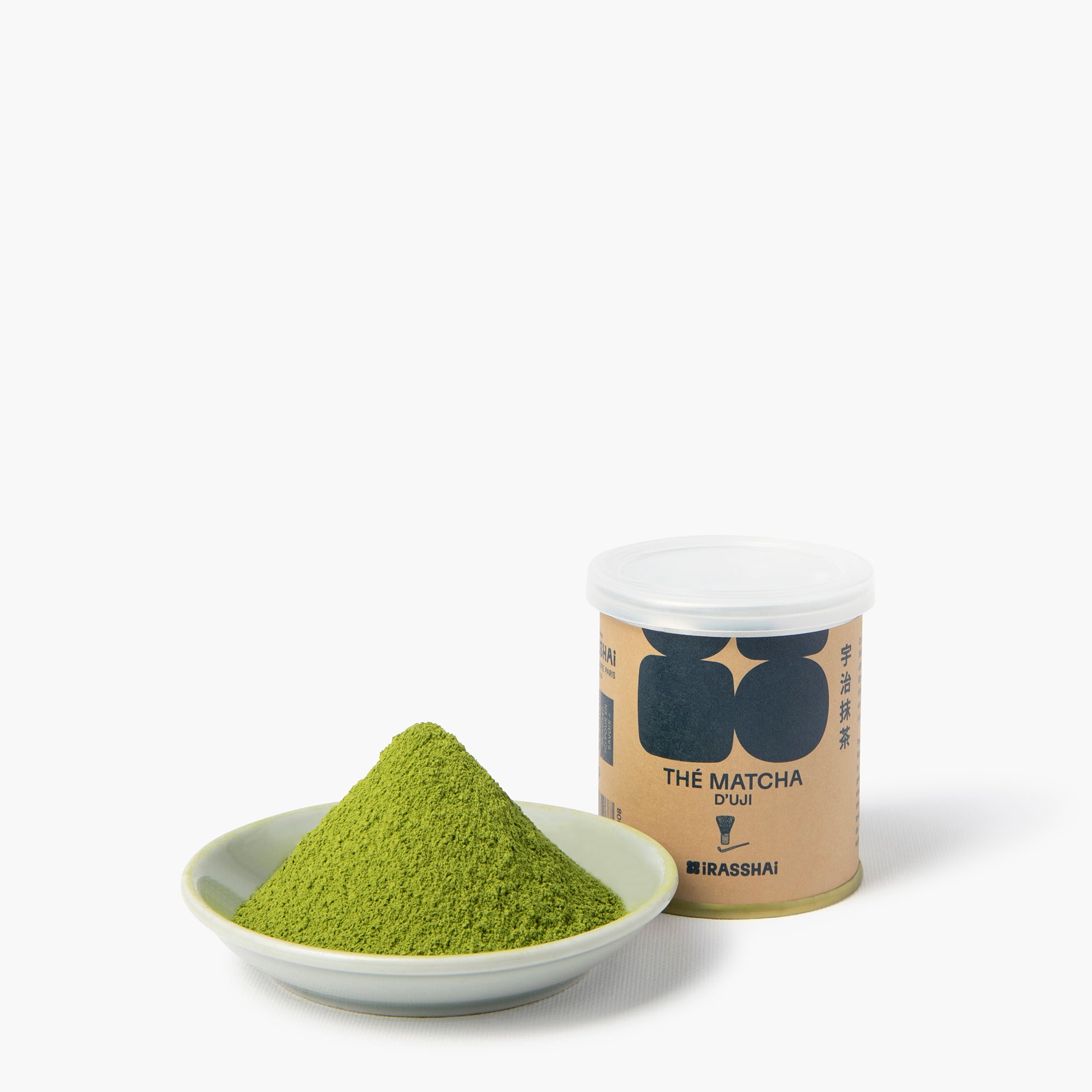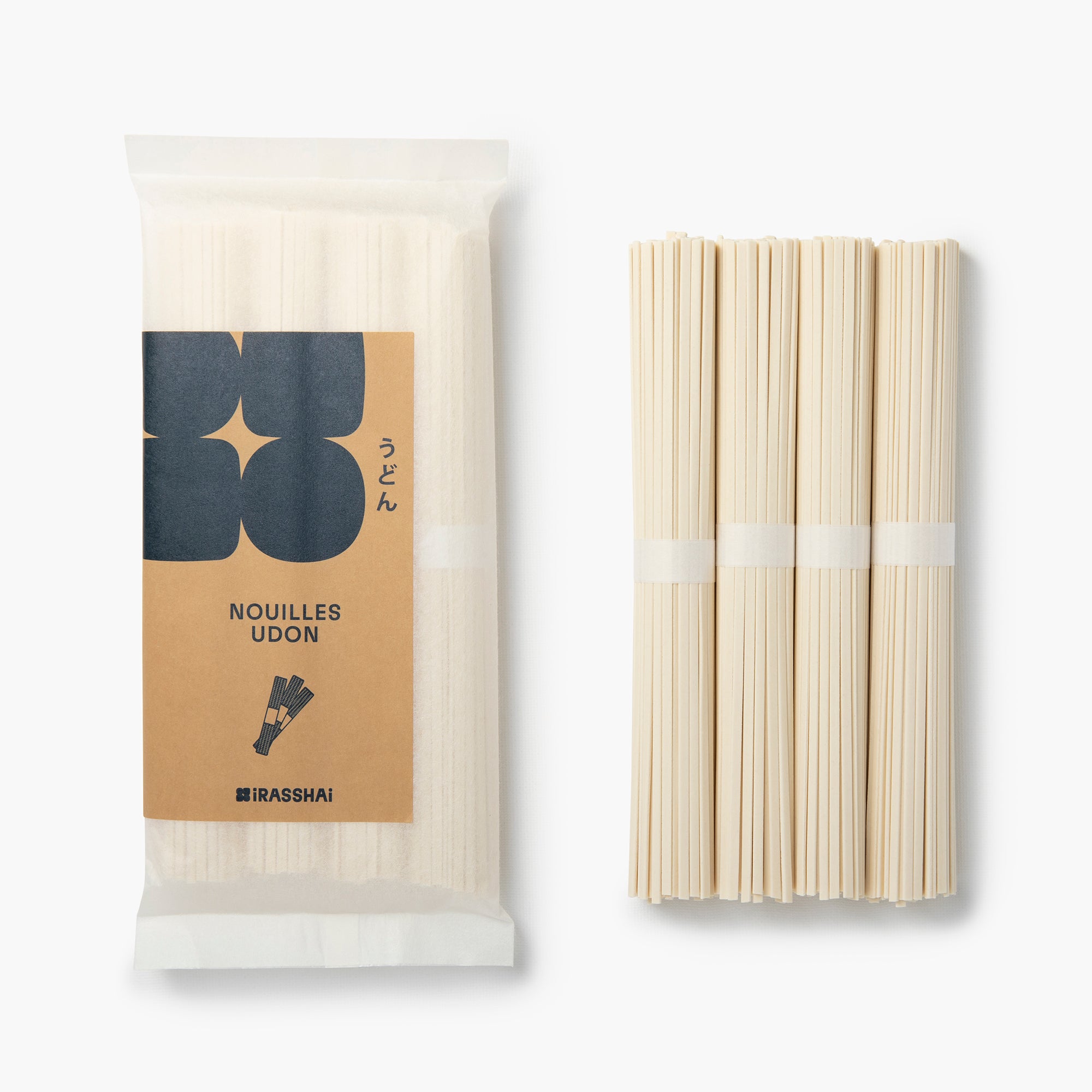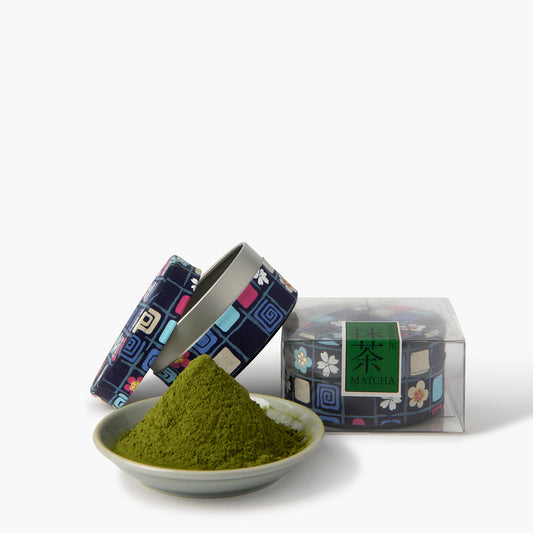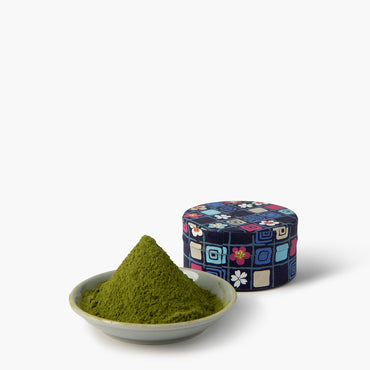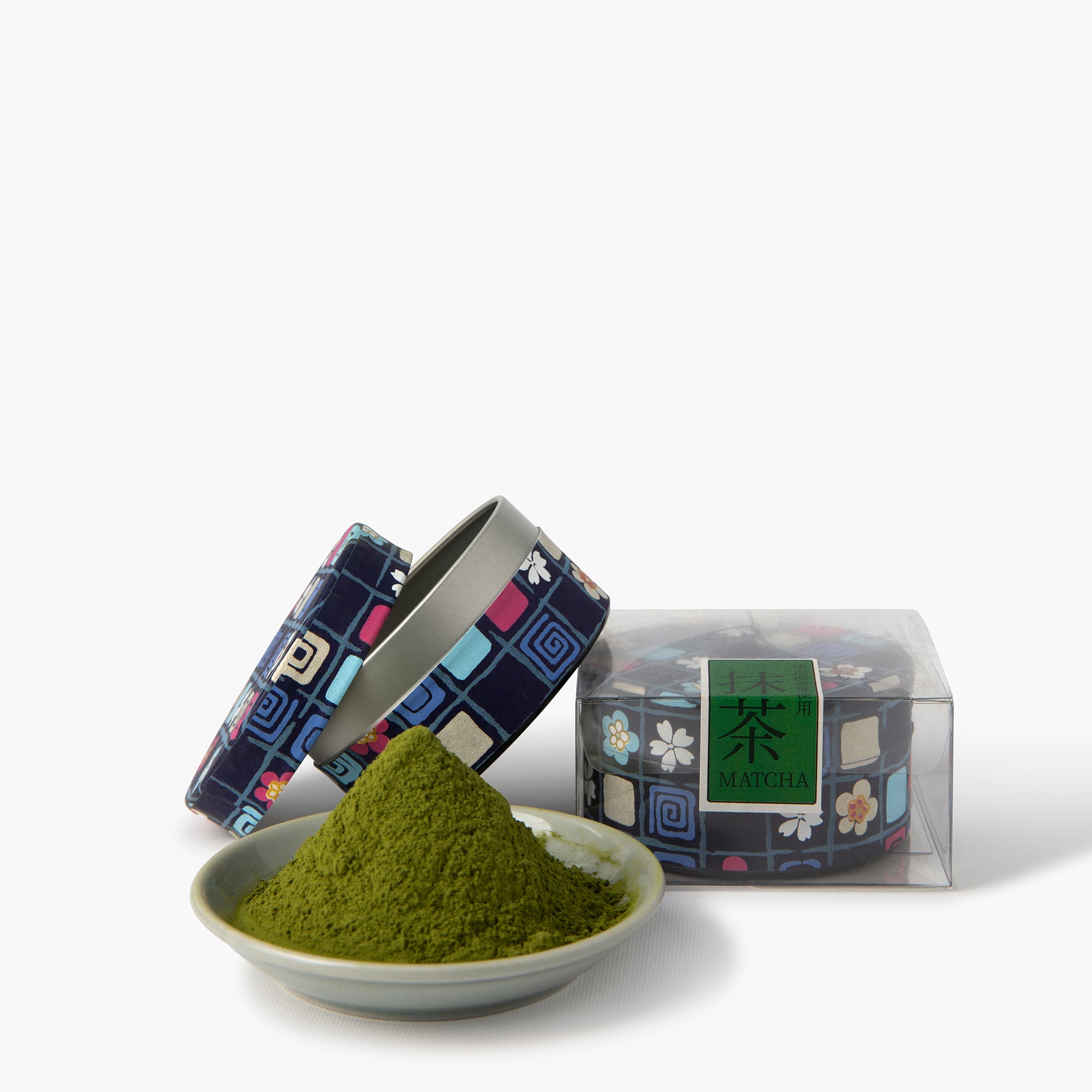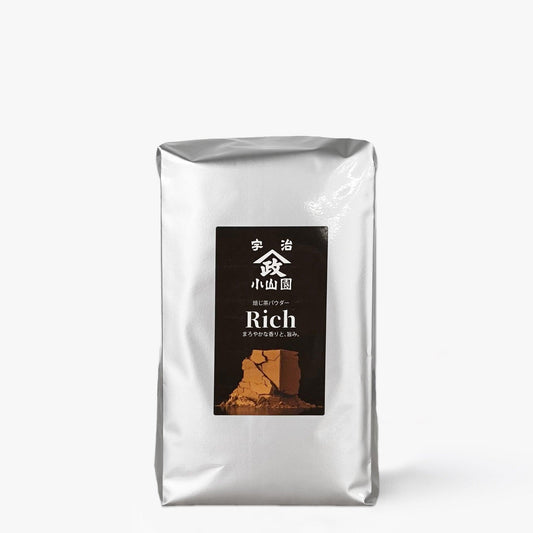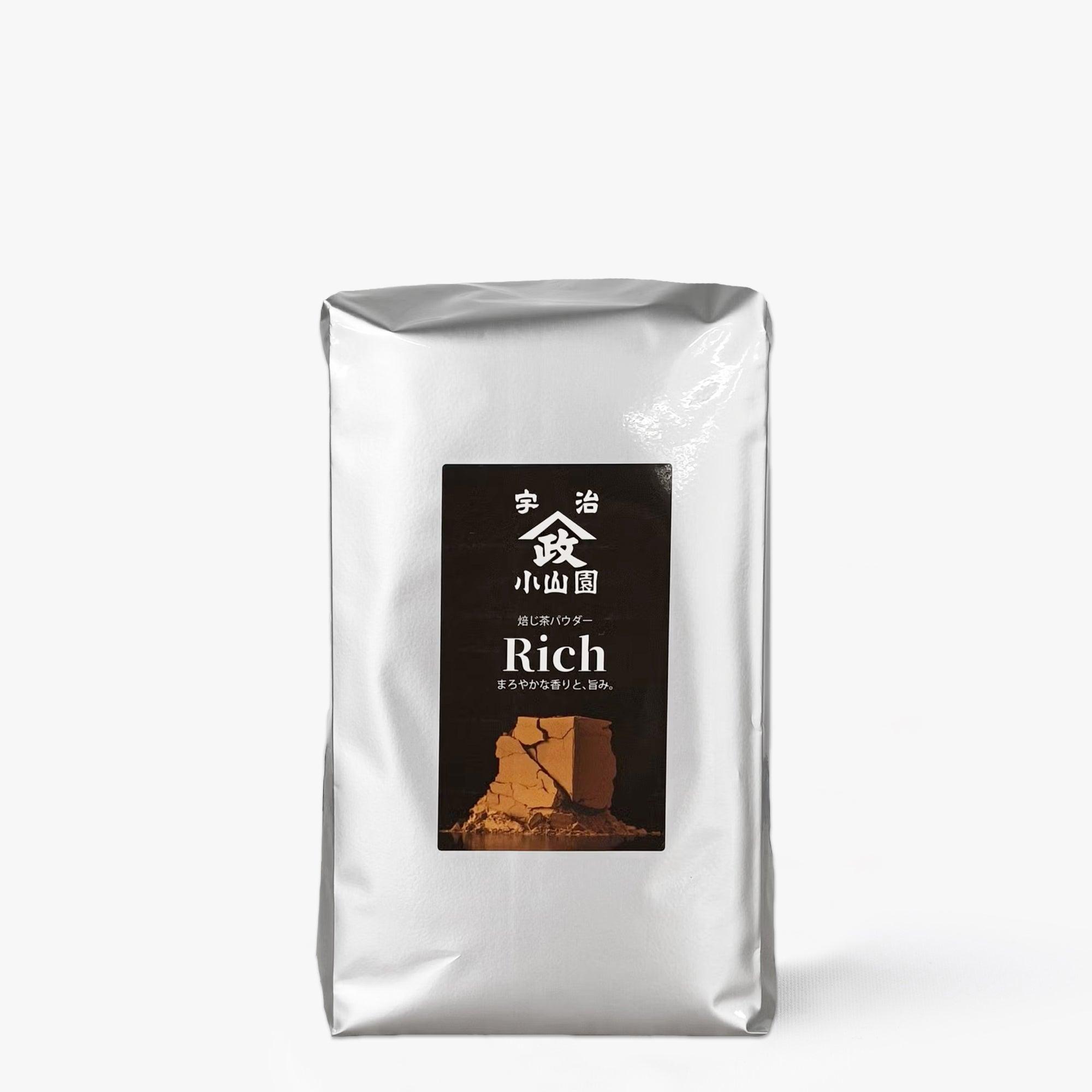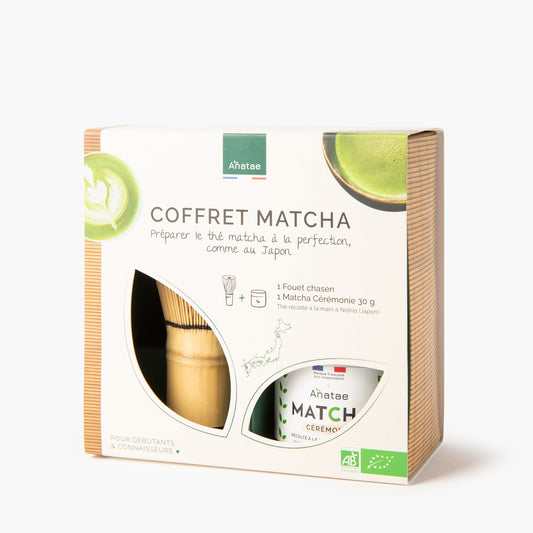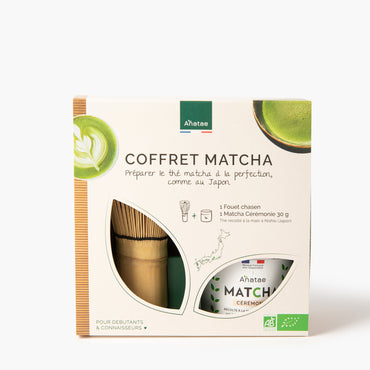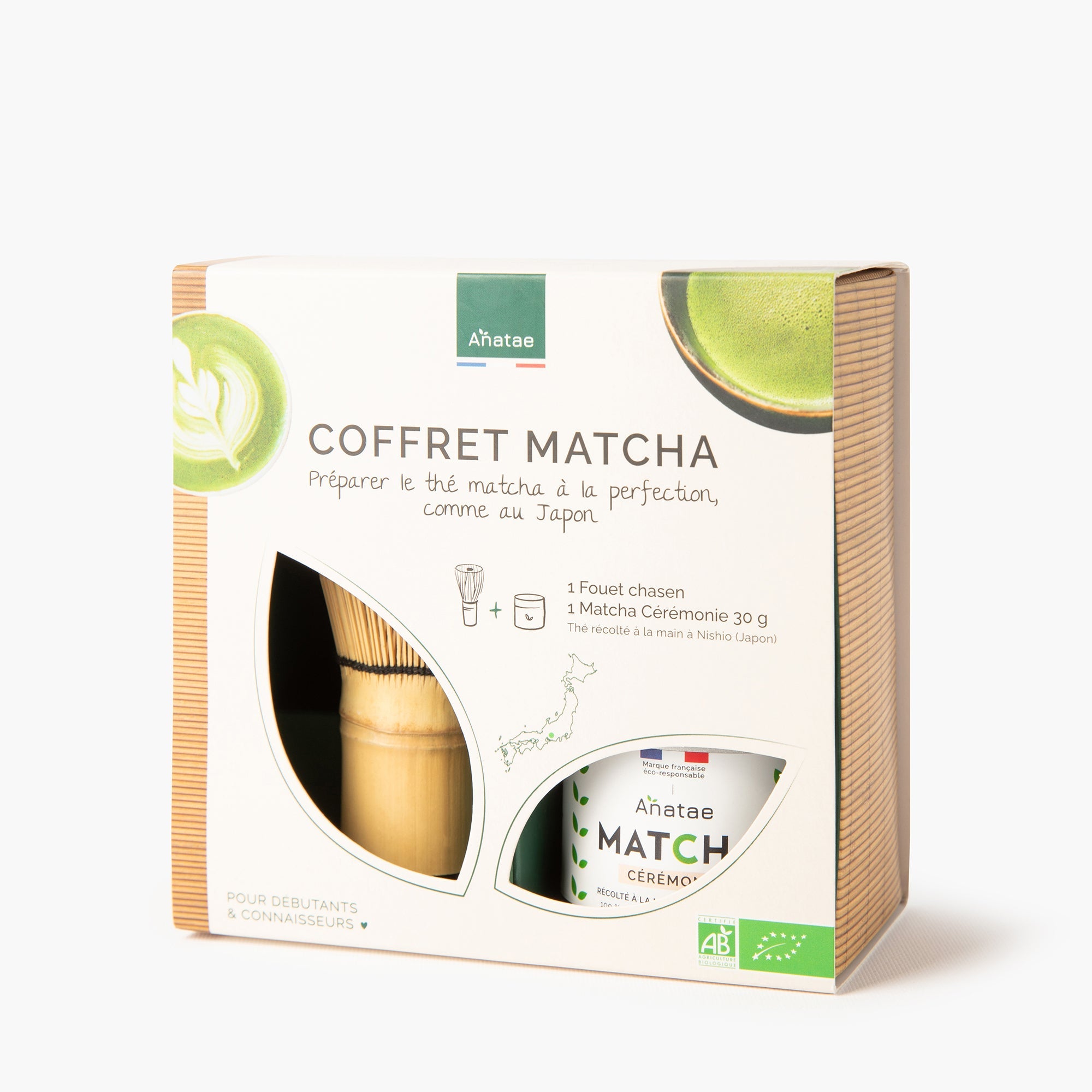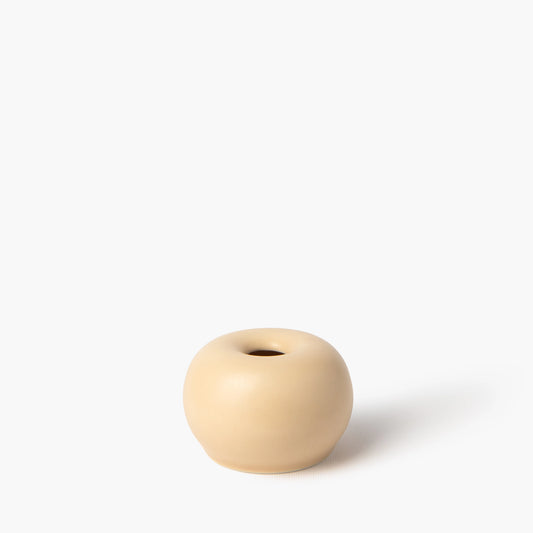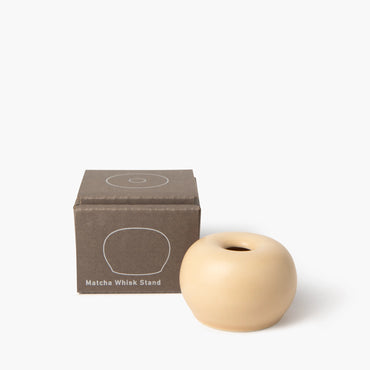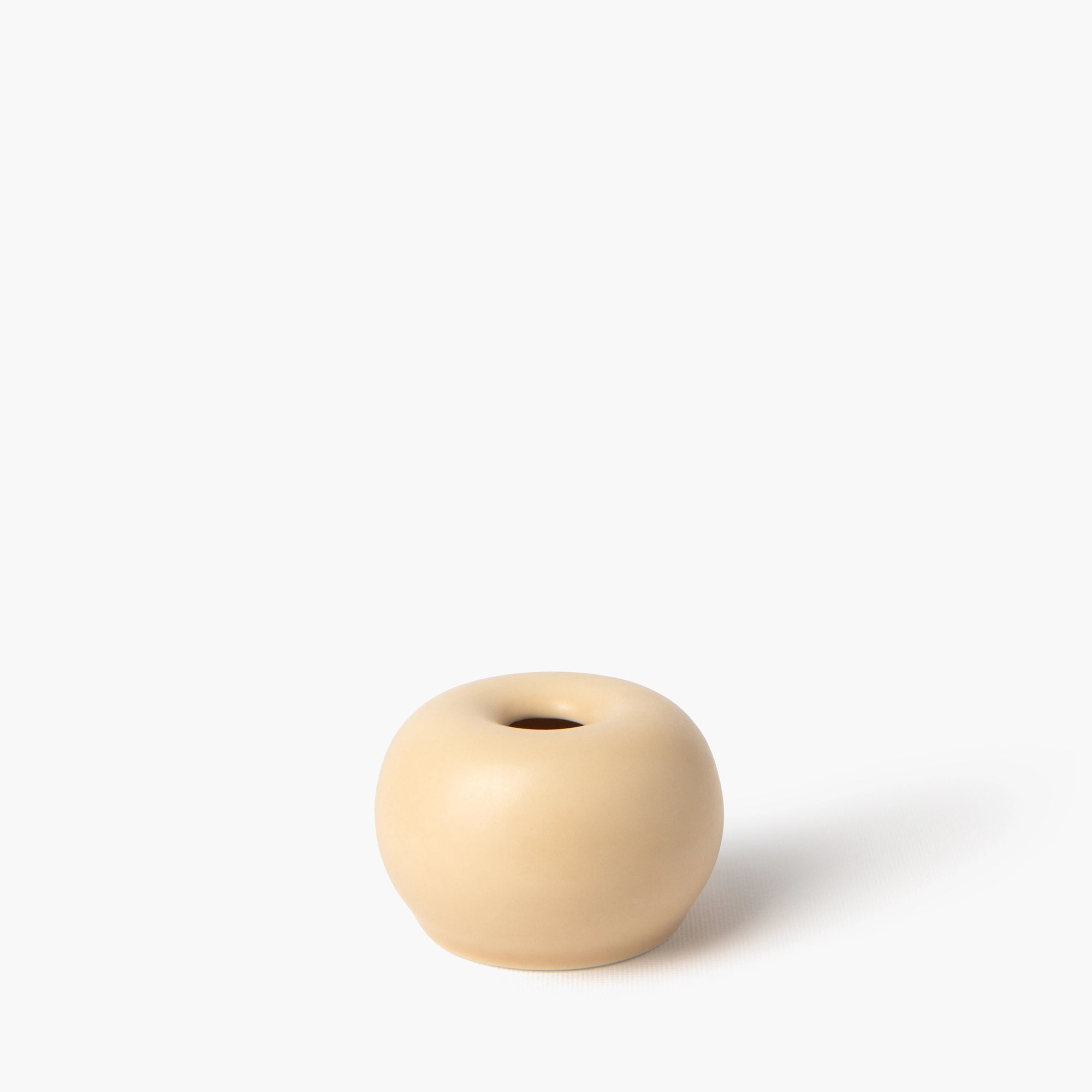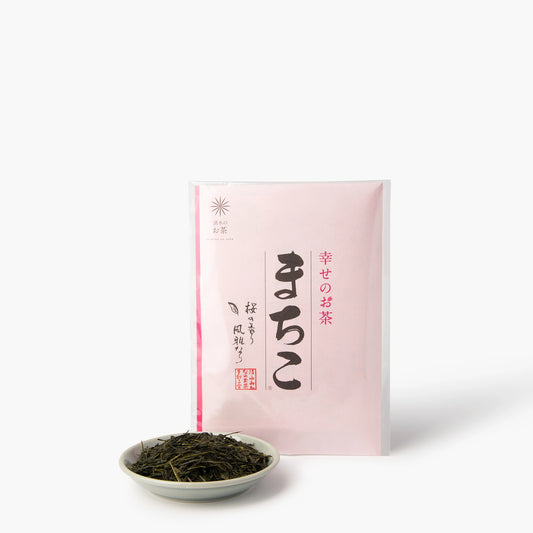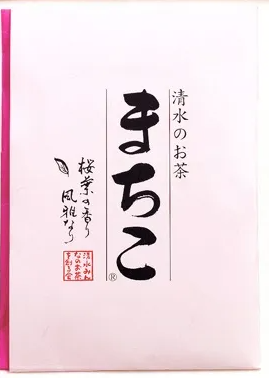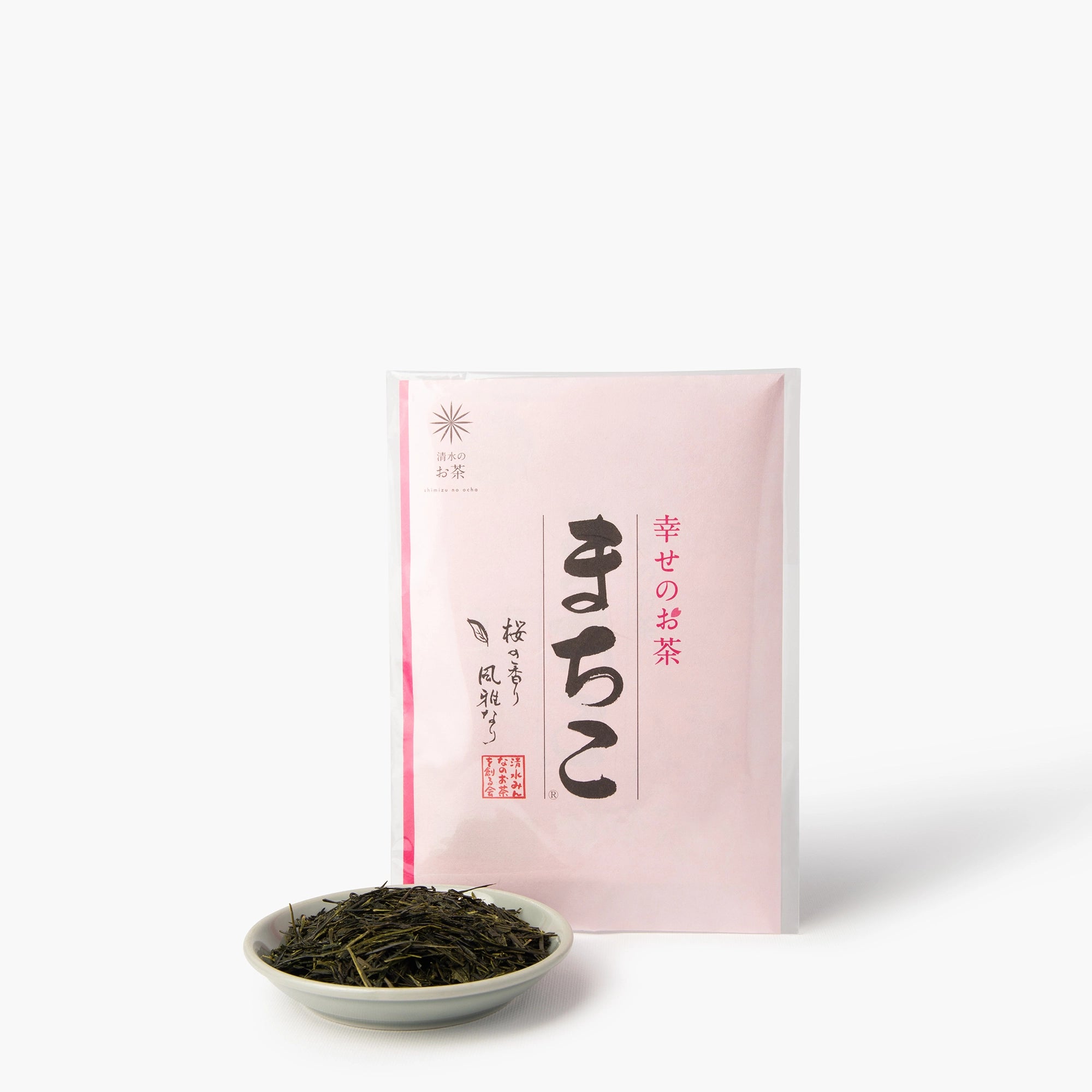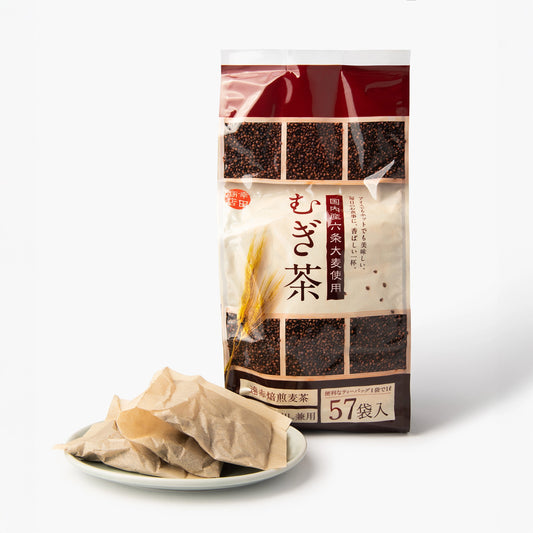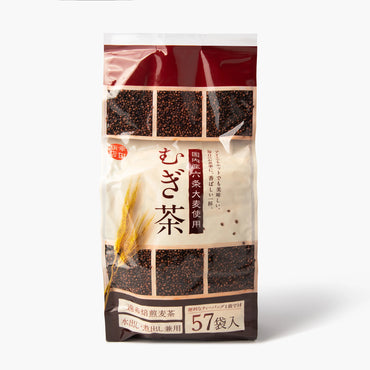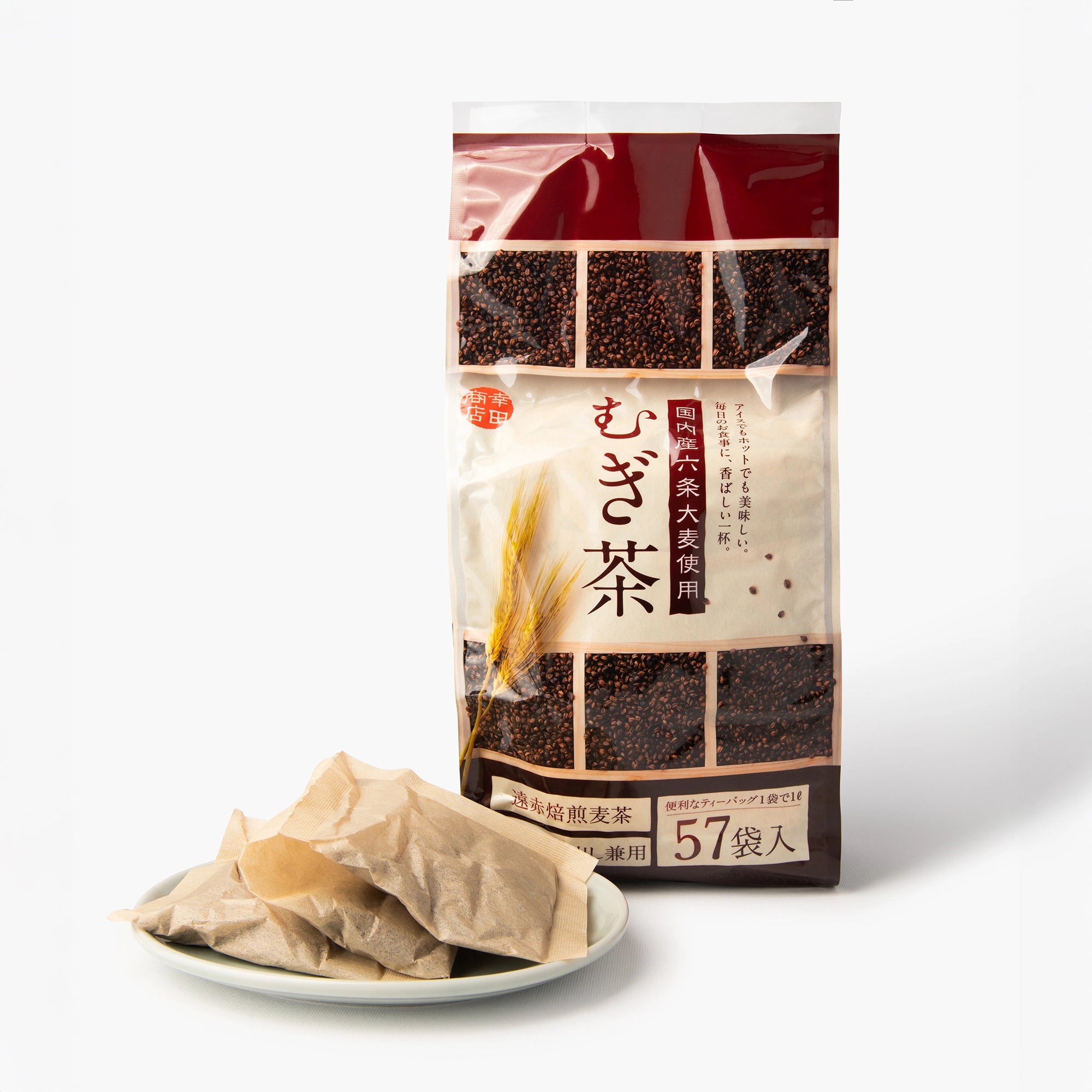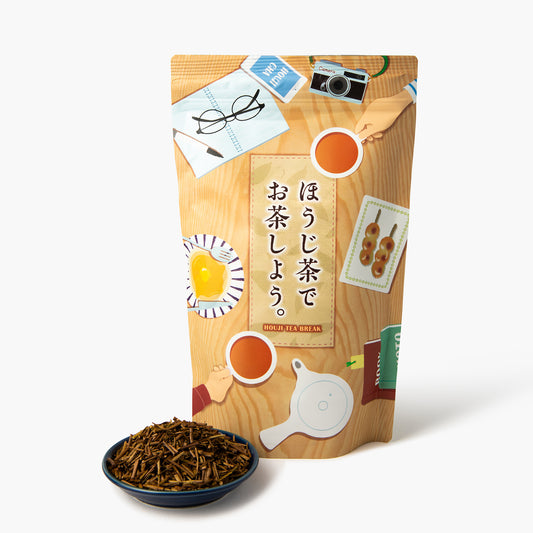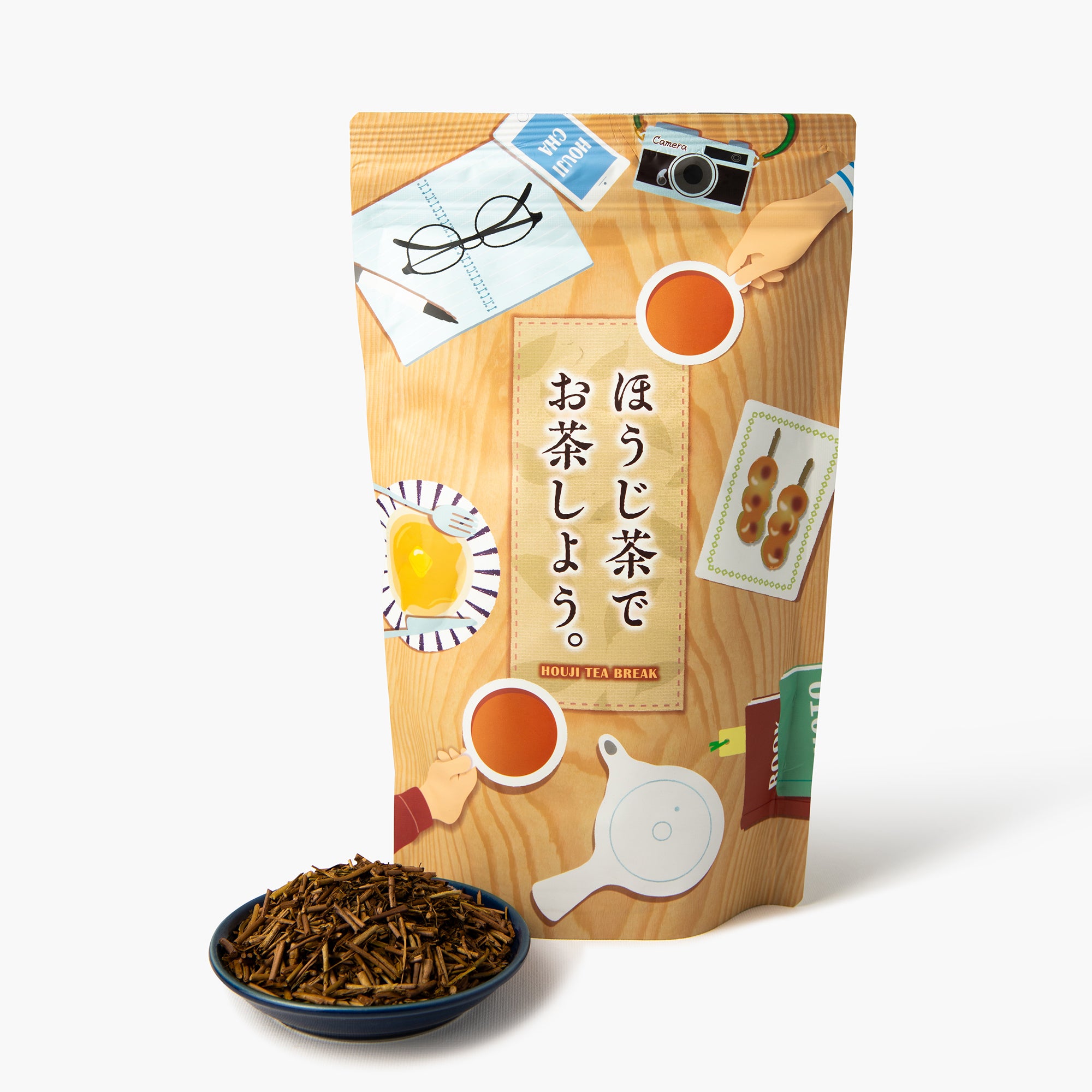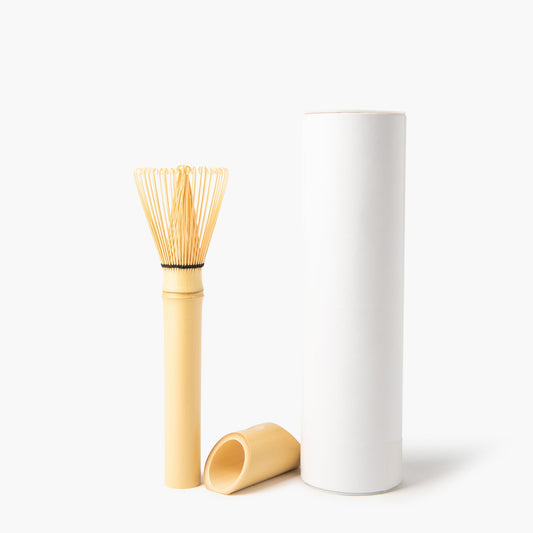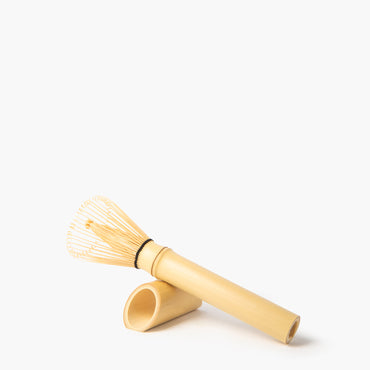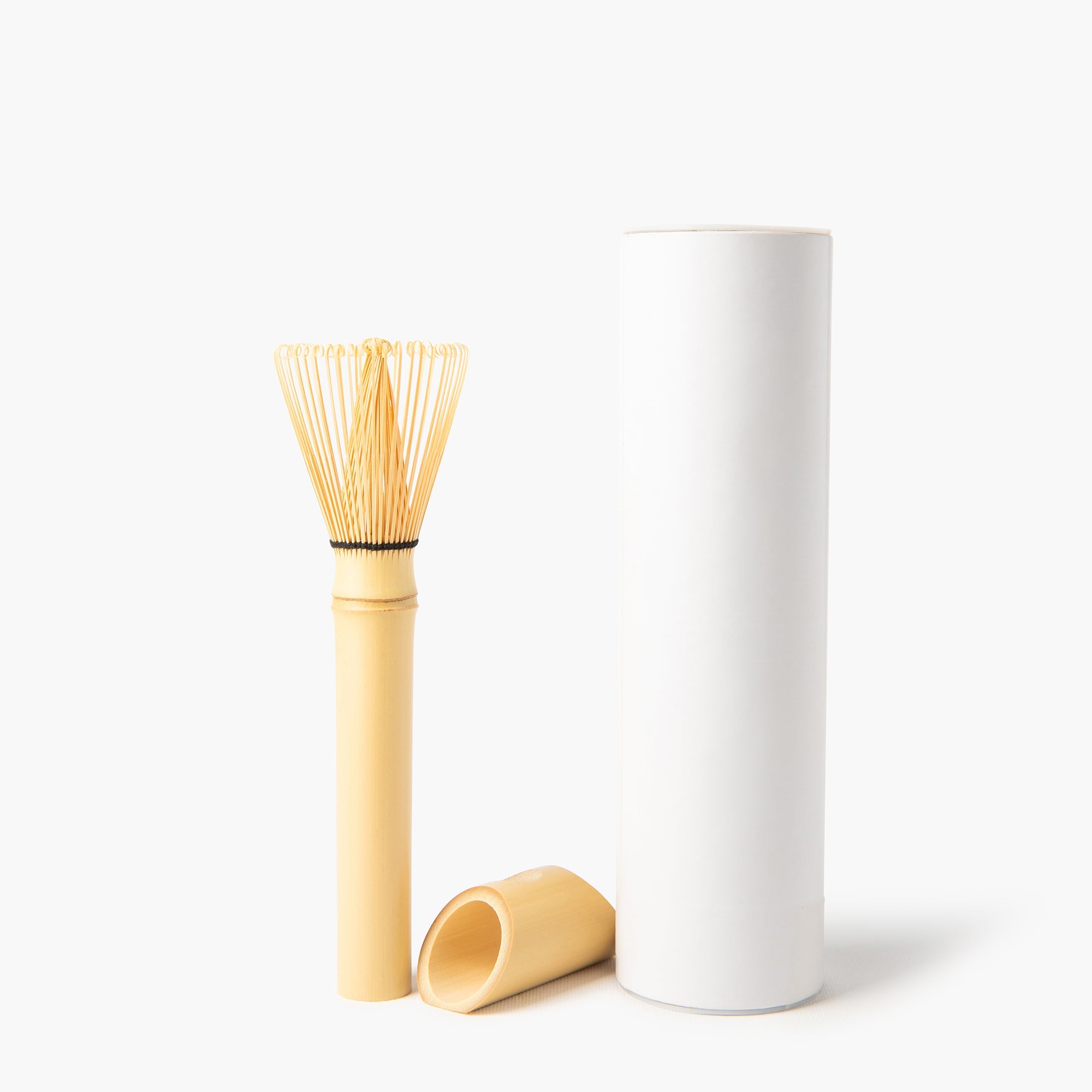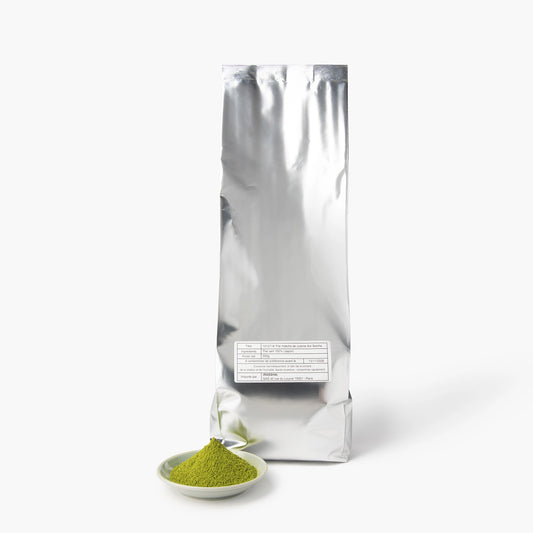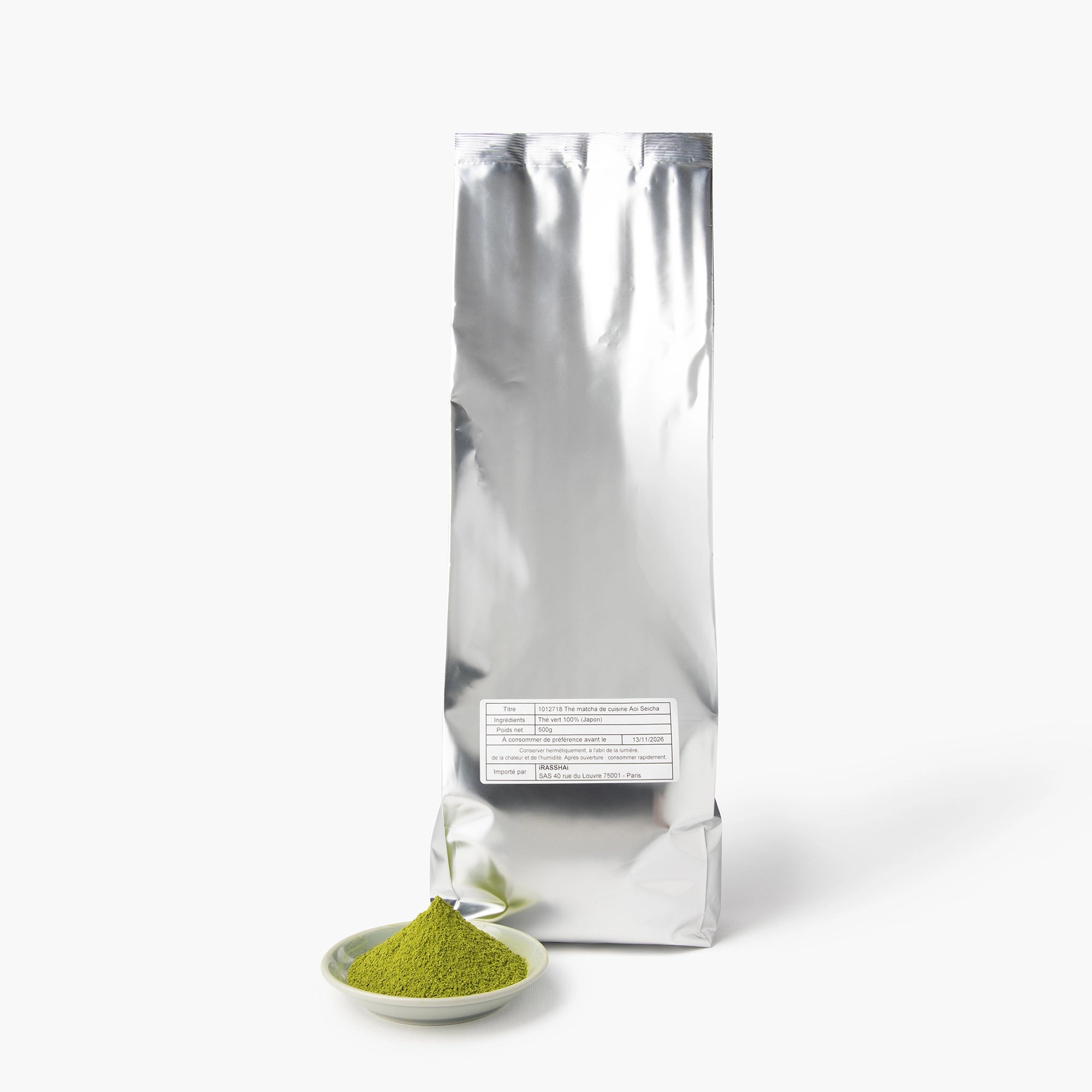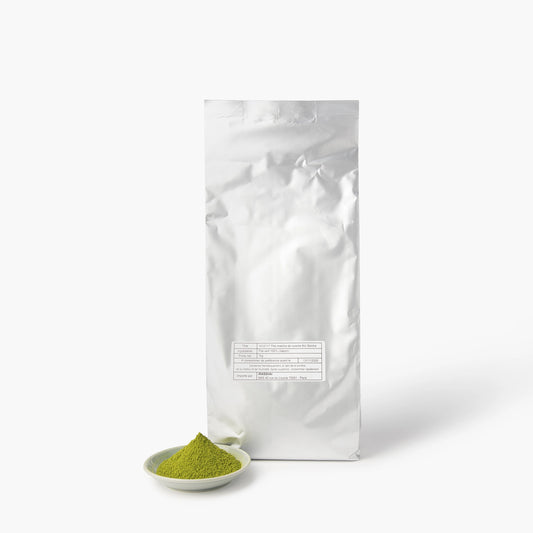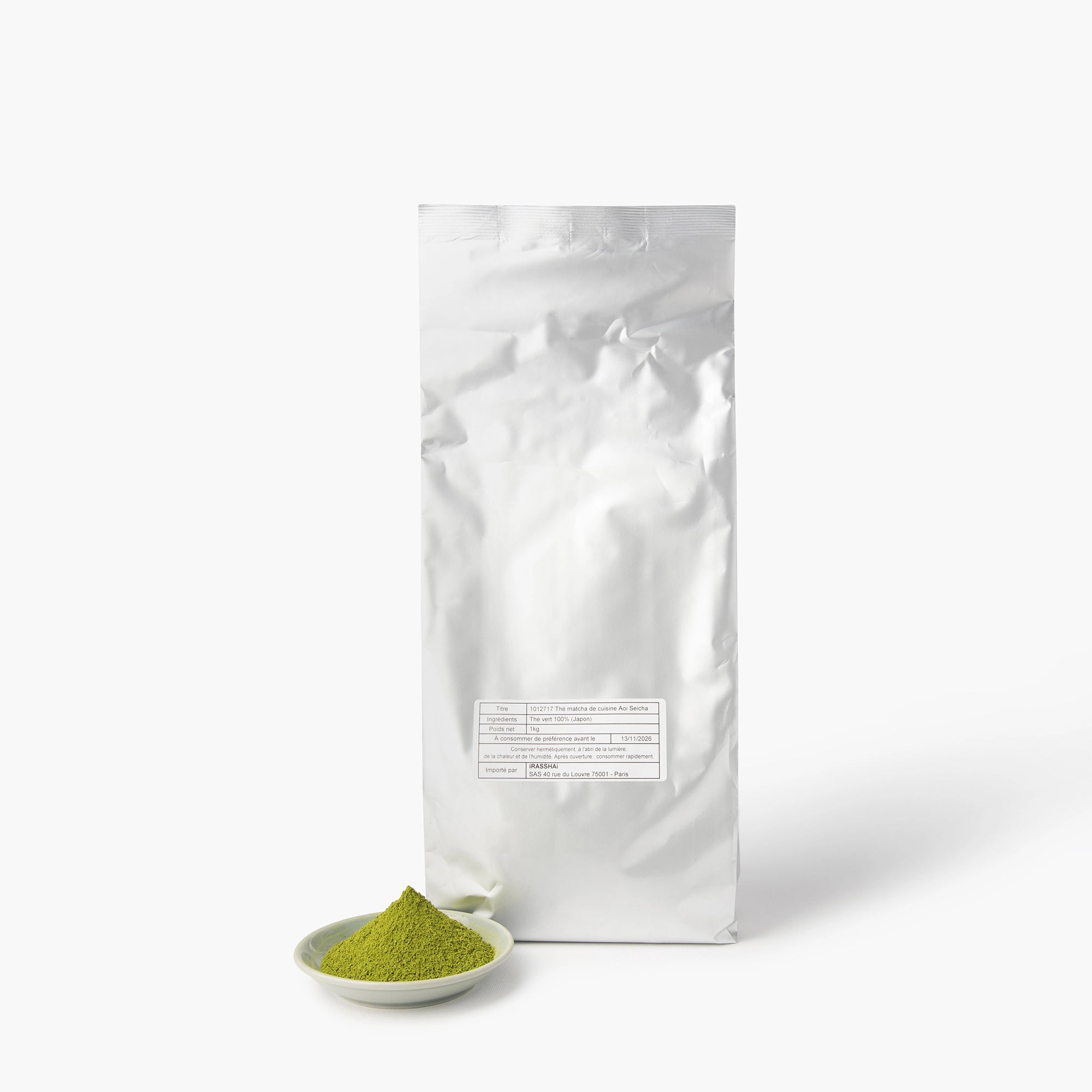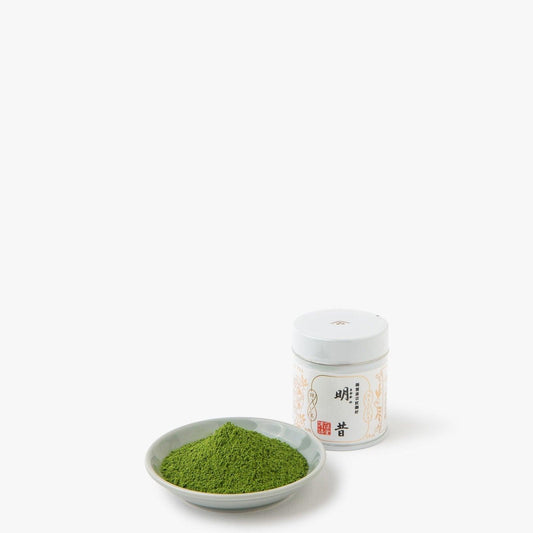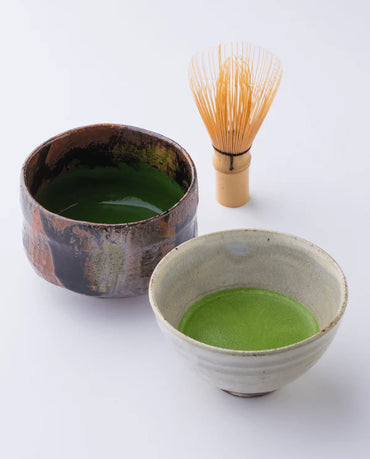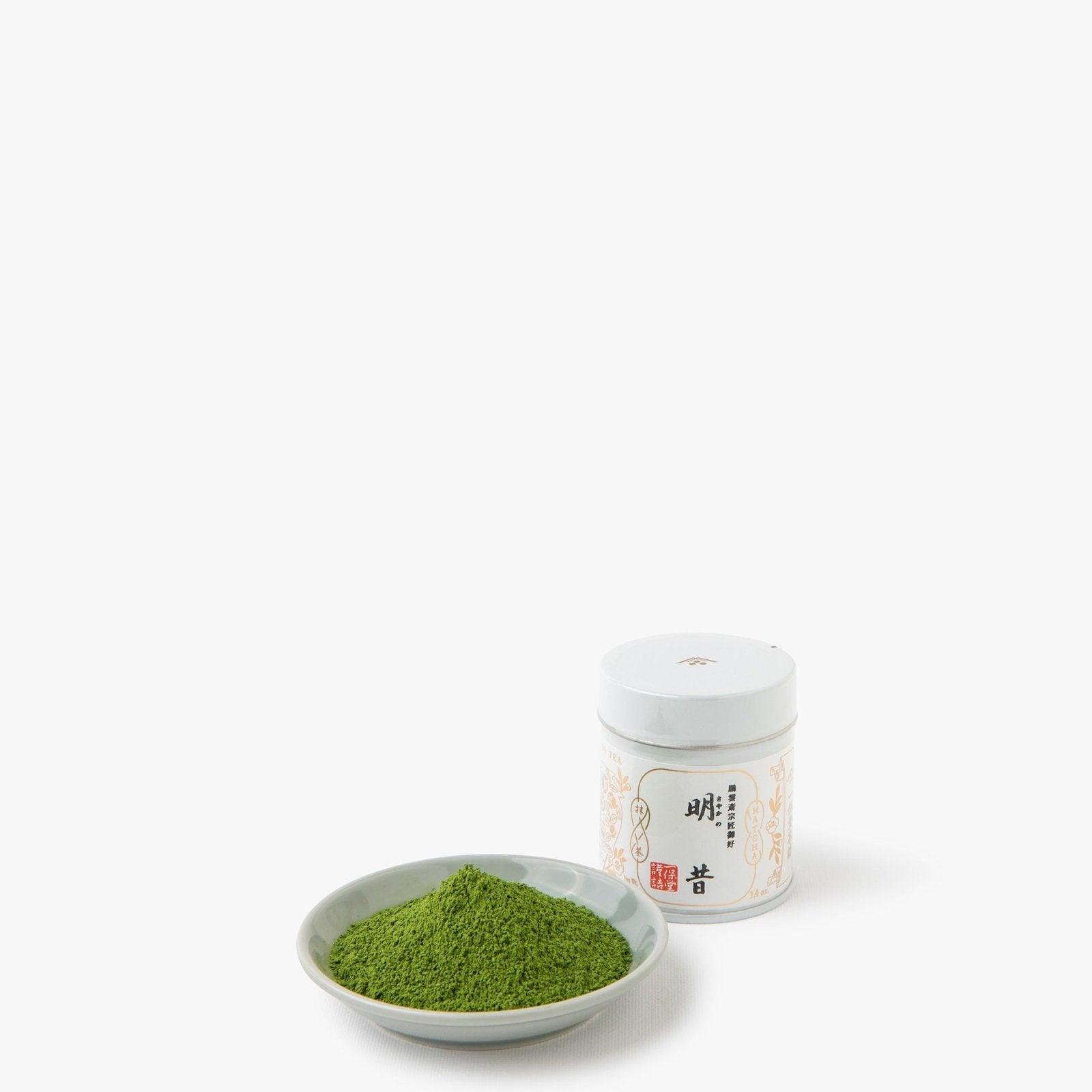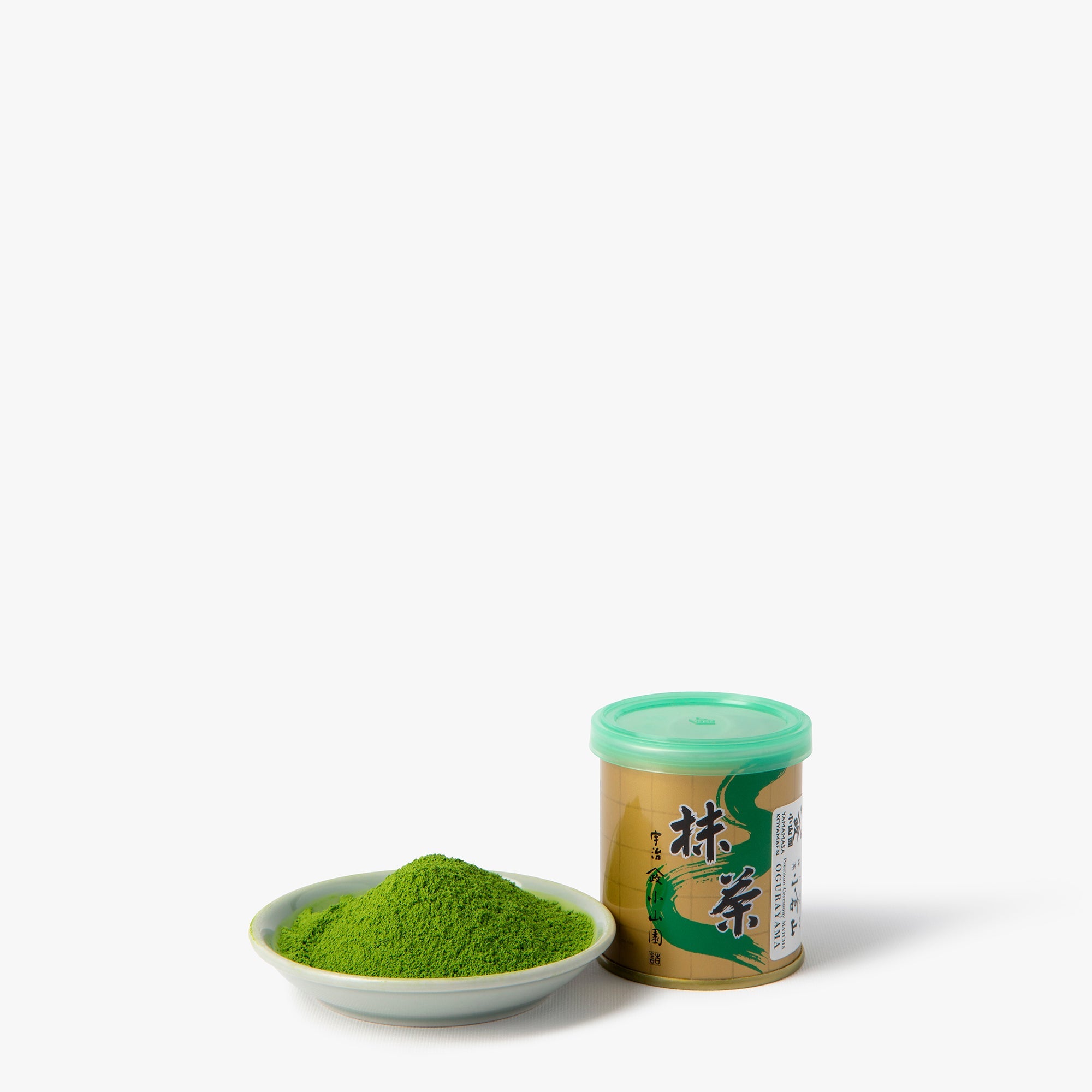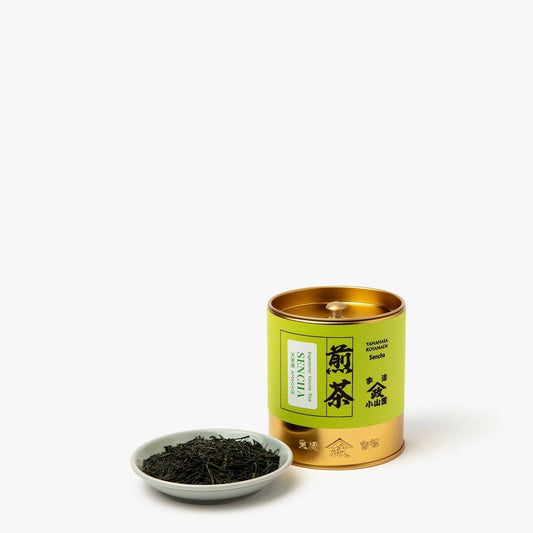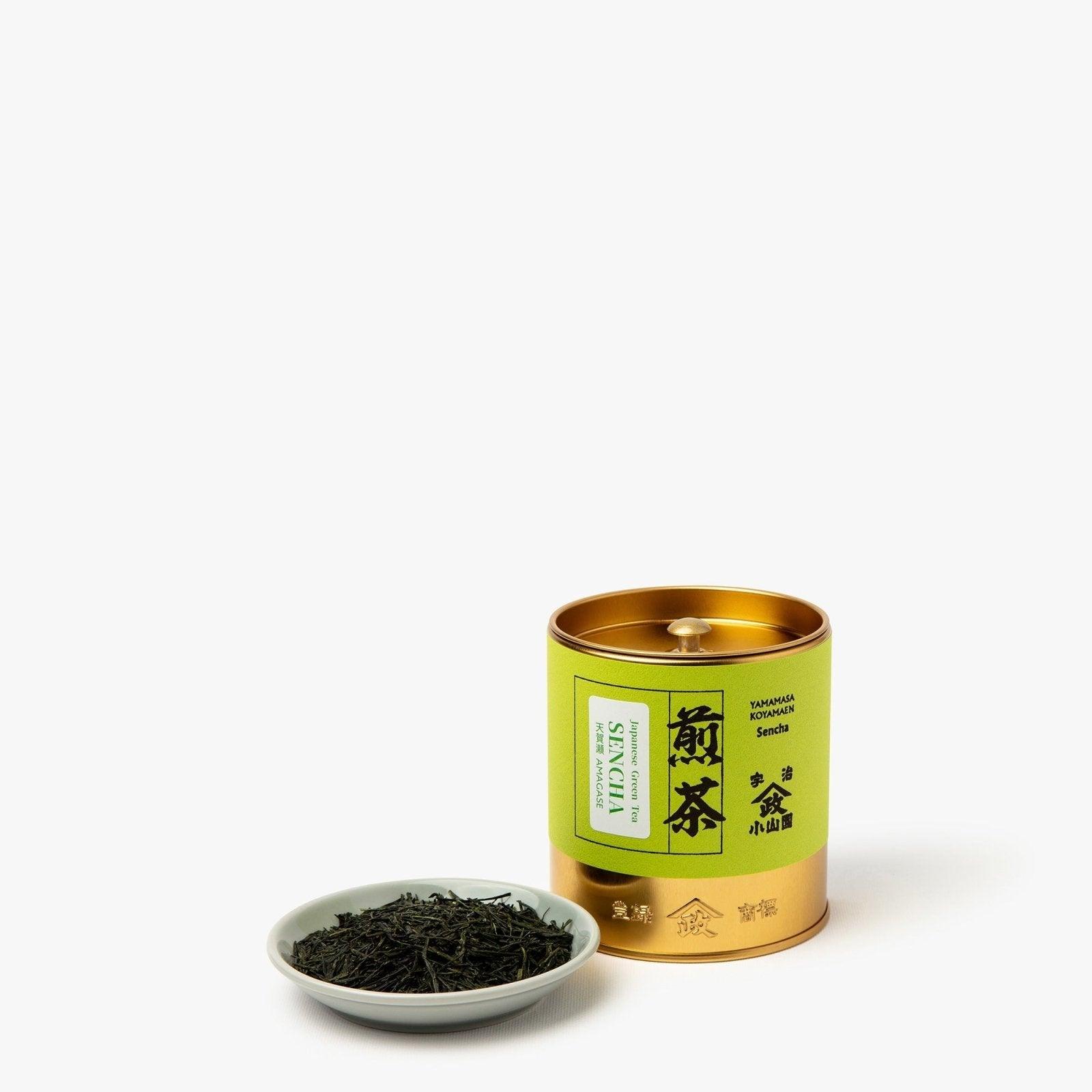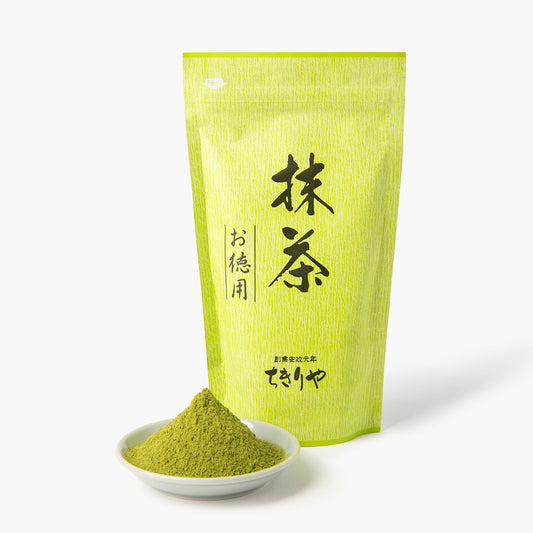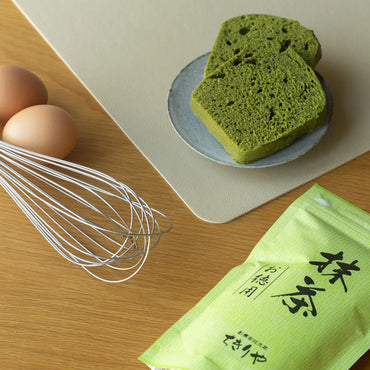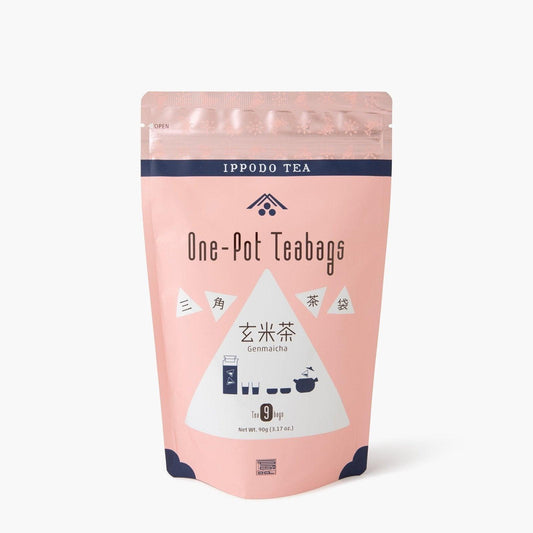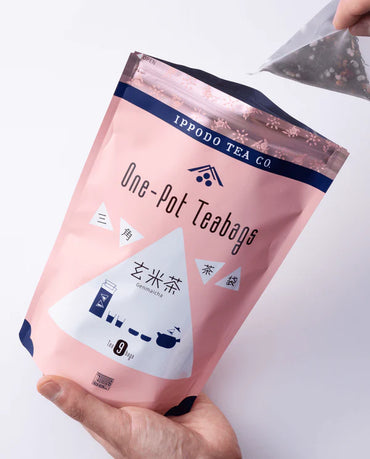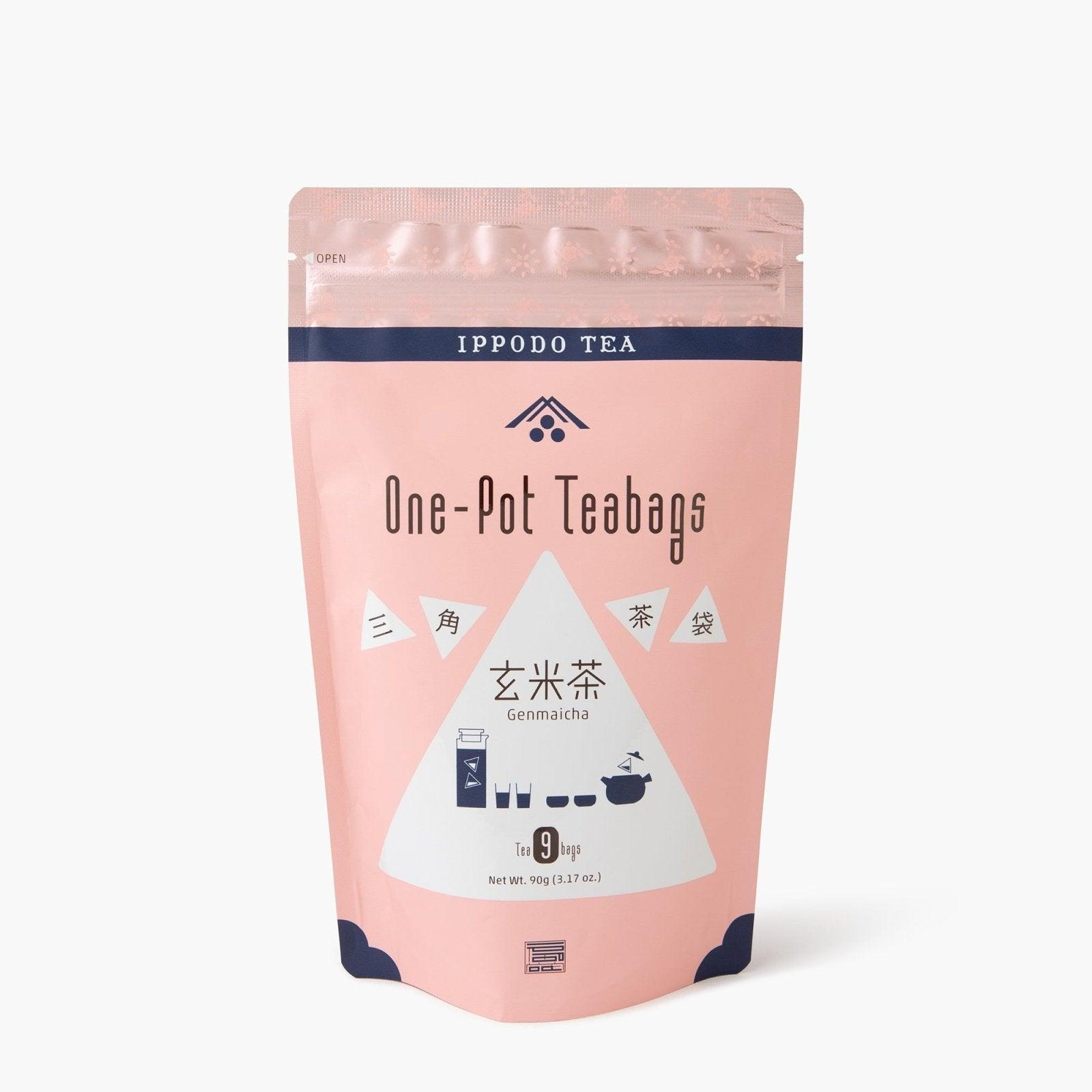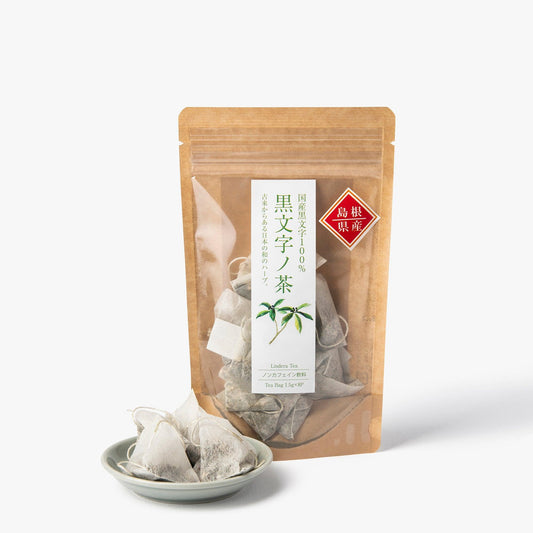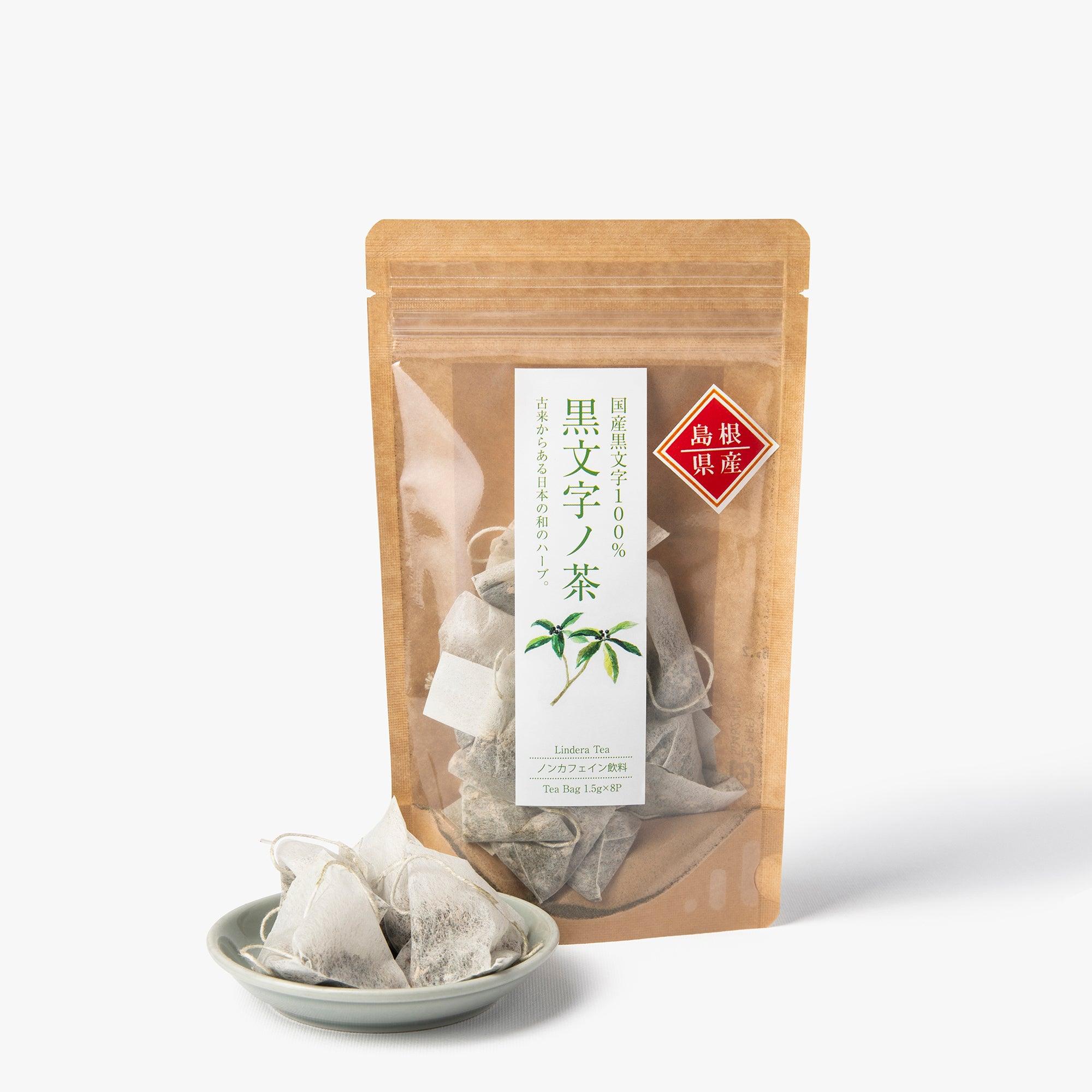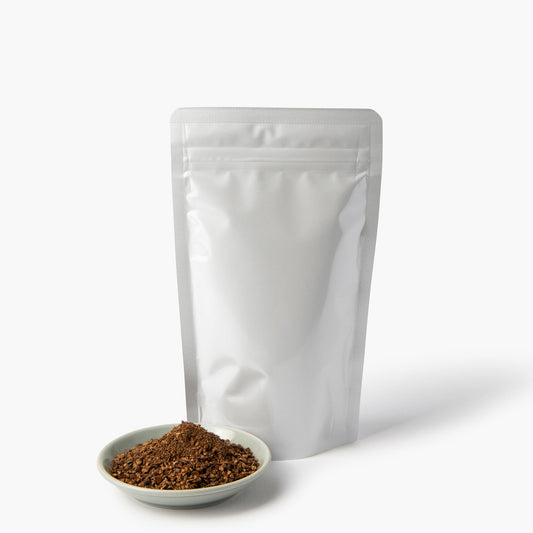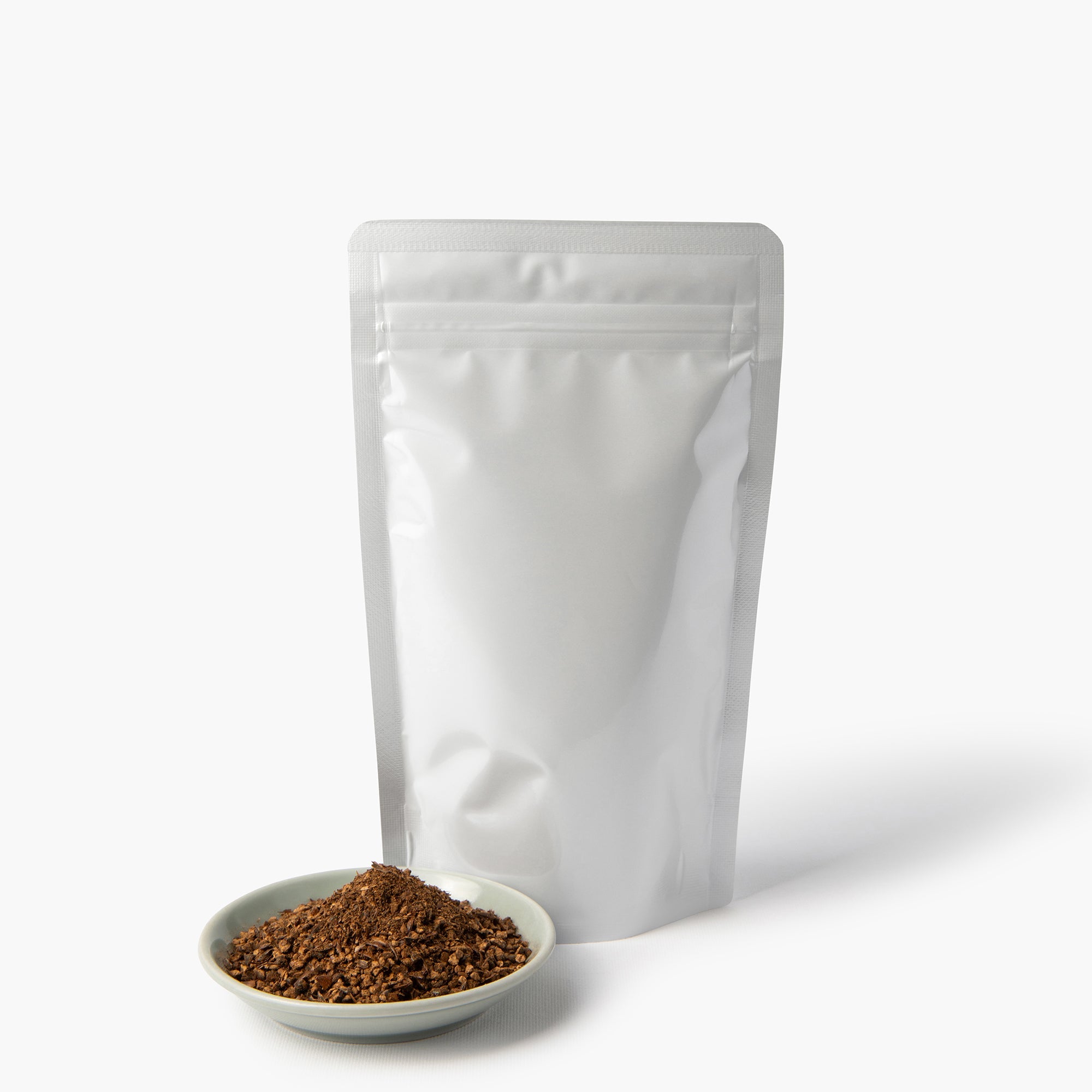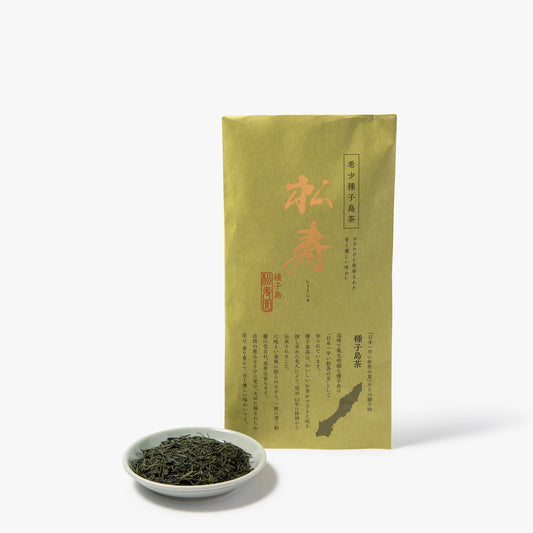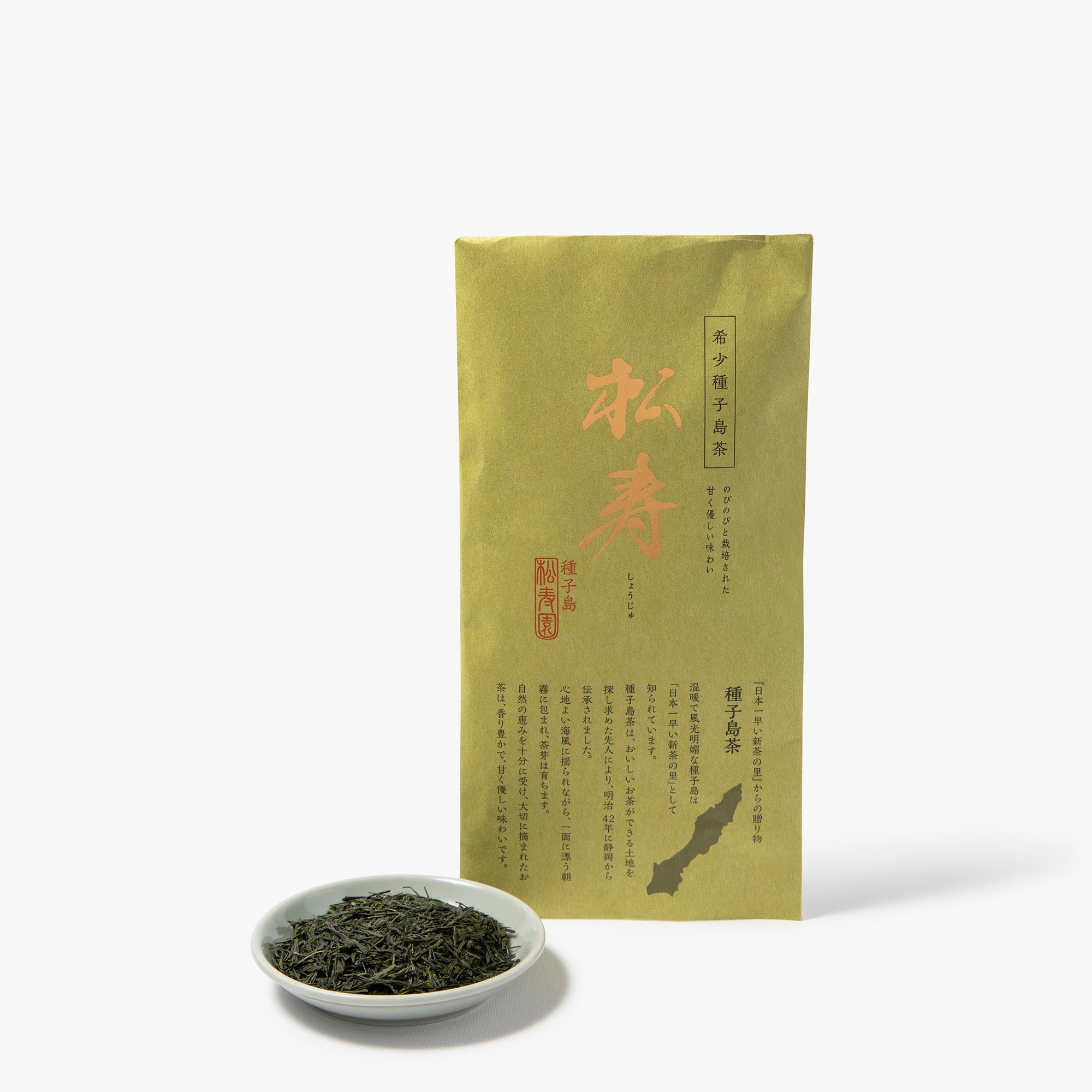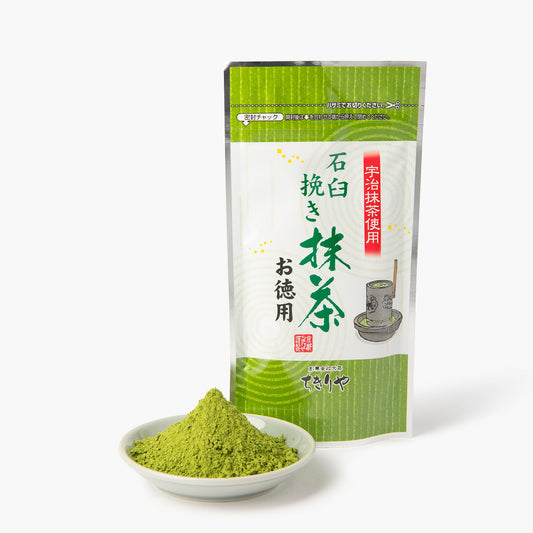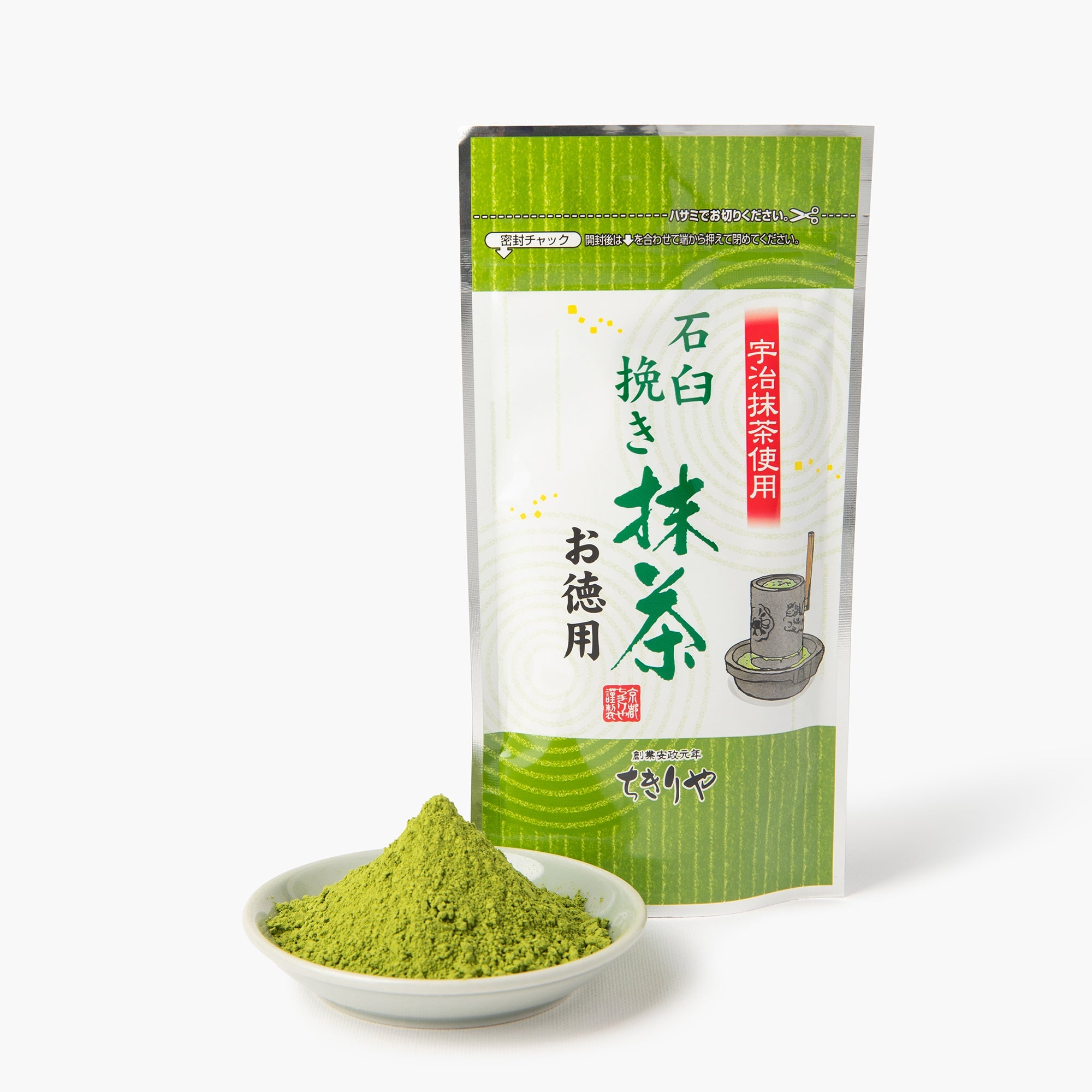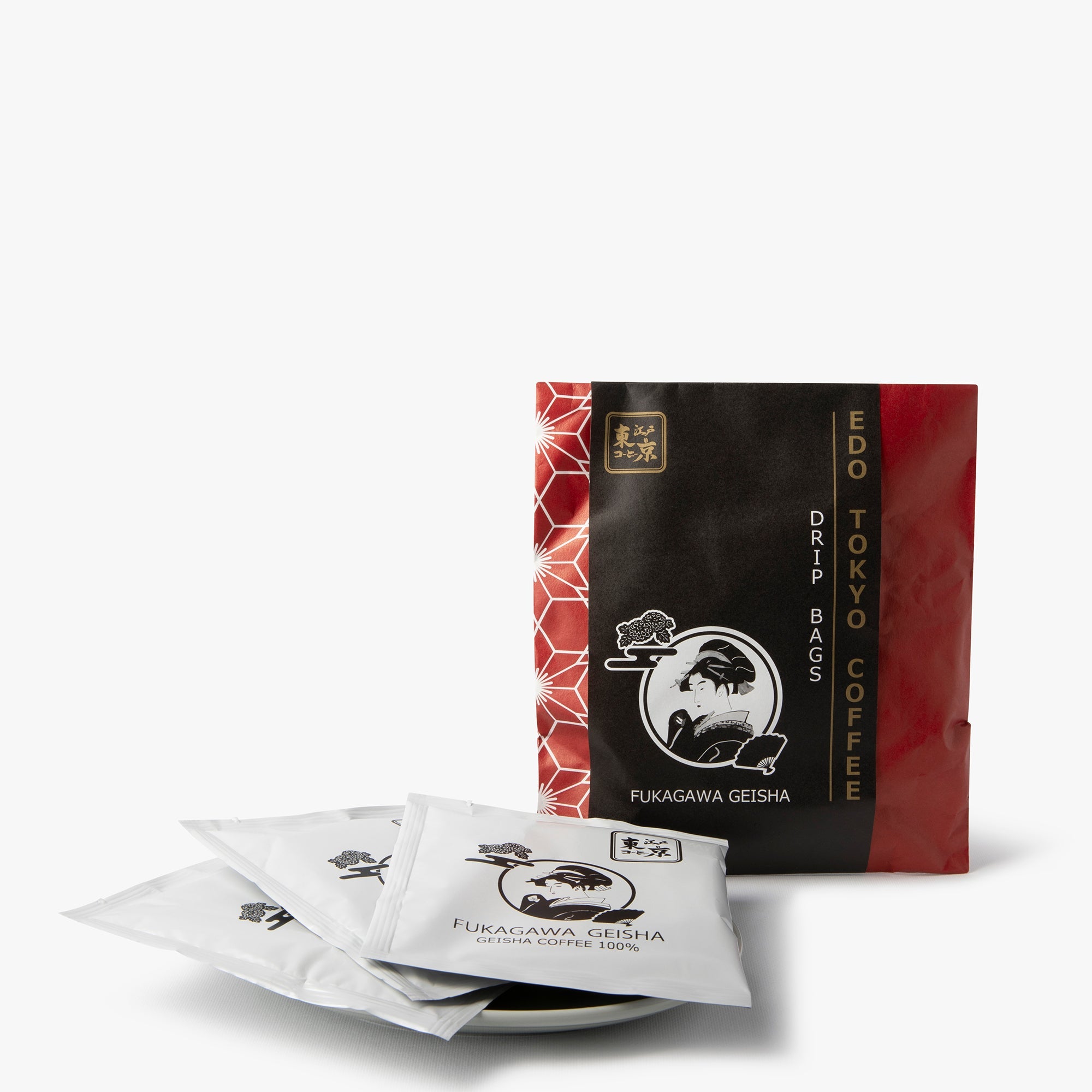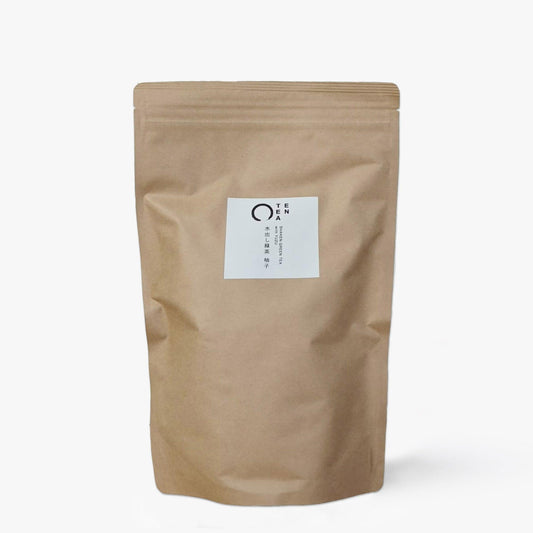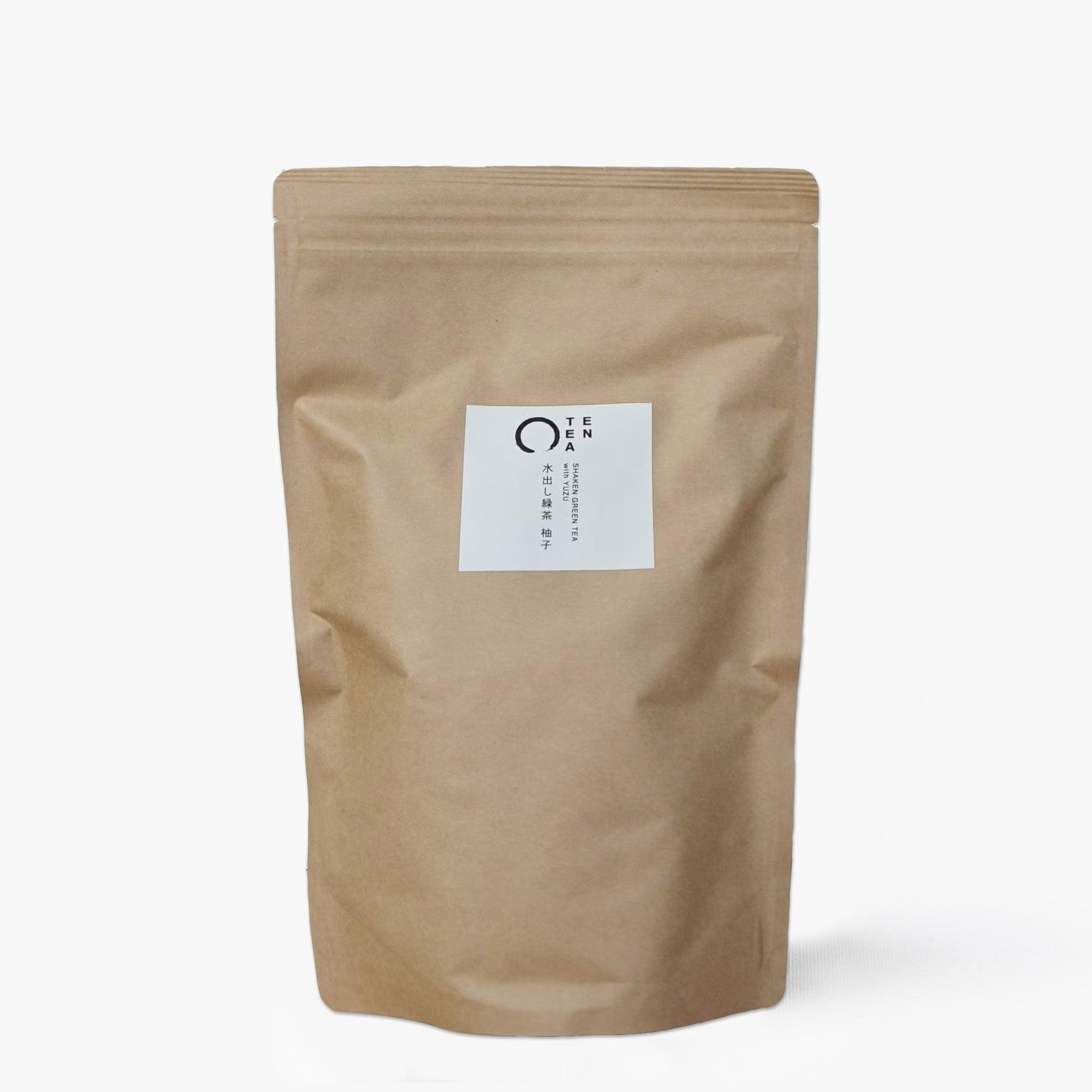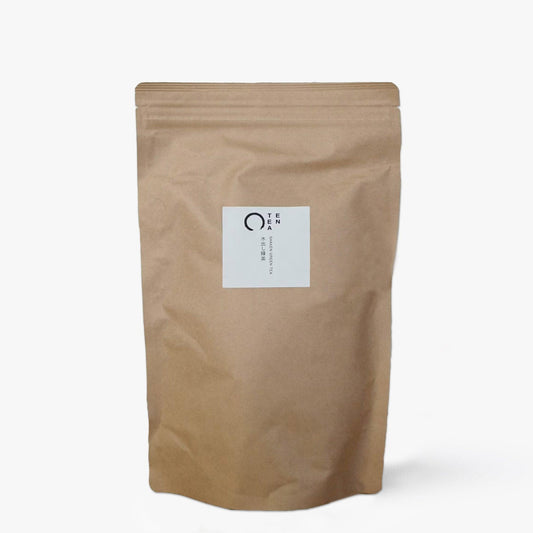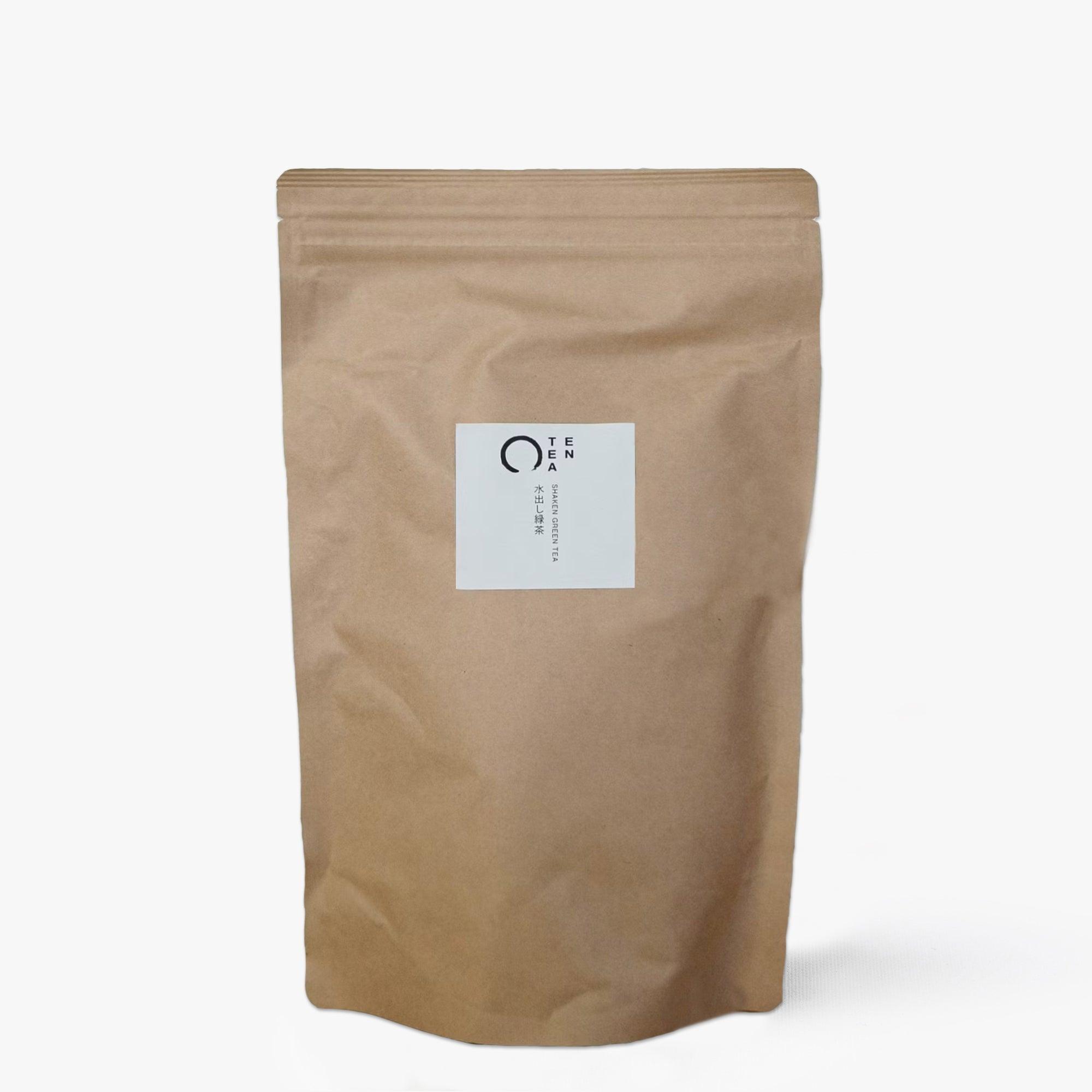Collection: Teas & infusions
Japan enjoys ideal geographical and climatic conditions for growing high-quality teas and infusions. They are said to have numerous health benefits: rich in antioxidants and vitamins, they are considered invigorating beverages, promoting relaxation and concentration. Discover our selection of Japanese teas and infusions to accompany you throughout the day!

-
Japanese medlar leaf infusion Biwacha ⋅ Totsukawa Farm ⋅ 250g
Made from the leaves of Japanese medlar trees harvested in Kagoshima prefecture, this infusion (naturally caffeine- and theine-free) is obtained by following a special...
Regular price 26.00 €Prix promotionnel 26.00 € Regular pricePrice per unit 104.00 € / per kg -
Black tea bag ⋅ Satsumaen ⋅ 36g
•Black tea made exclusively from leaves grown in Japan.•Amber color, floral taste, and rich in umami.•Perfect hot (with pastries) or cold as iced tea.•...
Regular price 16.50 €Prix promotionnel 16.50 € Regular pricePrice per unit 458.33 € / per kg -
Organic matcha genmai tea ⋅ Anatae ⋅ 30g
⋅ Made with Kagoshima tea⋅ Combines the fresh, umami taste of the Yabukita cultivar with the toasty, comforting notes of genmaicha⋅ As good hot...
Regular price 38.00 €Prix promotionnel 38.00 € Regular pricePrice per unit 1,266.67 € / per kg -
Classic matcha tea from Shimizu ⋅ Japan Agricultural Corporative Shimizu ⋅ 30g
•Suitable for use in lattes or traditional tasting.•Suitable for pastries and desserts, adding vibrant color and a distinct umami flavor.•A versatile product suitable for both...
Regular price 32.50 €Prix promotionnel 32.50 € Regular pricePrice per unit 1,083.33 € / per kg -
Classic Matcha Fauna ⋅ KURA-GE ⋅ 30g
⋅ Deeply umami and vegetal taste with balanced bitterness⋅ Made from a blend of Yabukita and Okumidori cultivars⋅ A matcha from Uji⋅ Ideal as a drink,...
Regular price 29.90 €Prix promotionnel 29.90 € Regular pricePrice per unit 996.67 € / per kg -
Roasted hojicha tea powder ⋅ Yamamasa Koyamaen ⋅ 1kg
This hojicha powder is used like matcha. Its warm, roasted taste is reminiscent of hazelnut and cocoa, making it an ideal substitute...
Regular price 105.00 €Prix promotionnel 105.00 € Regular pricePrice per unit 105.00 € / per kg -
Matcha ceremony and whip set ⋅ Anatae ⋅ 30g
Immerse yourself in the art of Japanese matcha with this complete set from Anatae. It includes 30 g of ceremonial-grade matcha and a traditional bamboo whisk...
Regular price 69.90 €Prix promotionnel 69.90 € Regular pricePrice per unit 2,330.00 € / per kg -

Your tea essentials
-
Ohara matcha genmaicha tea loose ⋅ Yamamasa Koyamaen ⋅ 1kg
This unique tea is obtained by sprinkling matcha over genmaicha, giving a unique emerald infusion color. Genmaicha and matcha are among the...
Regular price 72.00 €Prix promotionnel 72.00 € Regular pricePrice per unit 72.00 € / per kg -
Matcha whisk holder chasen-naoshi donut ⋅ Anatae
Regular price 32.00 €Prix promotionnel 32.00 € Regular pricePrice per unit / per -
Sencha tea from Bohneur Machiko ⋅ Japan Agricultural Corporative Shimizu ⋅ 40g
• Aromatic notes reminiscent of sakura leaves.• Provides a feeling of freshness and well-being.• Easy to prepare, can be enjoyed hot or cold.• Green tea...
Regular price 20.00 €Prix promotionnel 20.00 € Regular pricePrice per unit 500.00 € / per kg -
Mugicha barley tea ⋅ 57 bags ⋅ Kota Shoten ⋅ 456g
A pure apple juice with a fresh and sweet taste, capturing all the sweetness of this fruit. It is made using only 100% apples...
Regular price 9.50 €Prix promotionnel 9.50 € Regular pricePrice per unit 20.83 € / per kg -
Shimizu roasted Hojicha tea ⋅ Japan Agricultural Corporative Shimizu ⋅ 100g
•Very low in caffeine •Ideal at any time of day •Mild, rounded, and toasty flavor A Hojicha tea made exclusively from tea stems and leaves from...
Regular price 16.00 €Prix promotionnel 16.00 € Regular pricePrice per unit 160.00 € / per kg -
Sencha tea for cold brewing 10 bags ⋅ Sueshige Seicha ⋅ 50g
⋅ Designed for cold brewing⋅ Pack of 10 tea bags⋅ Packaging decorated with lucky motifs⋅ Ideal as a giftA Kagoshima sencha specially designed to be brewed...
Regular price 11.60 €Prix promotionnel 11.60 € Regular pricePrice per unit 232.00 € / per kg -
Long matcha whisk chasen bamboo 40 branches ⋅ Touga
⋅ Plum blossom-shaped dome⋅ Not microwave safe.⋅ Not dishwasher safe.A practical and elegant whisk designed for preparing...
Regular price 38.00 €Prix promotionnel 38.00 € Regular pricePrice per unit / per -
Sencha amagase tea from Kyoto Uji in bulk ⋅ Yamamasa Koyamaen ⋅ 1kg
Sencha is Japan's favorite tea! It has a fresh, light, floral taste. The young tea shoots are shaded...
Regular price 130.00 €Prix promotionnel 130.00 € Regular pricePrice per unit 130.00 € / per kg -
Matcha tea for cooking ⋅ Aoi Seicha ⋅ 500g
A furikake with the fresh, tangy taste of ume plum and yukari shiso. This furikake is made from pieces of...
Regular price 92.00 €Prix promotionnel 92.00 € Regular pricePrice per unit 184.00 € / per kg -
Matcha tea for cooking ⋅ Aoi Seicha ⋅ 1kg
An original furikake with a rich and powerful flavor combining the umami taste of nori with garlic and pepper. This furikake is prepared with...
Regular price 172.00 €Prix promotionnel 172.00 € Regular pricePrice per unit 172.00 € / per kg -
Japanese medlar leaf infusion ⋅ Totsukawa Farm ⋅ 600g
Made from the leaves of Japanese medlar trees harvested in Kagoshima prefecture, this infusion (naturally caffeine- and theine-free) is obtained by following a special...
Regular price 110.00 €Prix promotionnel 110.00 € Regular pricePrice per unit 183.33 € / per kg -
Sobacha de Tartarie buckwheat infusion 10 tea bags ⋅ Nikkoku Seifun ⋅ 60g
⋅ 10 easy-to-brew sachets⋅ Contains no theine or caffeine⋅ Scent reminiscent of toasted cereals⋅ Brews hot or cold⋅ Japanese buckwheat...
Regular price 8.70 €Prix promotionnel 8.70 € Regular pricePrice per unit 145.00 € / per kg -
Loose genmaicha tea ⋅ Sasaki seicha ⋅ 100g
⋅ Genmaicha with brown rice⋅ Gourmet flavor of toasted cereals⋅ Low caffeine⋅ Perfect accompaniment to Japanese meals⋅ Brews several timesA Japanese green tea...
Regular price 9.10 €Prix promotionnel 9.10 € Regular pricePrice per unit 91.00 € / per kg -
Ohara matcha genmaicha tea loose ⋅ Yamamasa Koyamaen ⋅ 200g
⋅ Blend of genmaicha and matcha⋅ Beautiful emerald infusion⋅ Deep umami dimension⋅ Vegetal notes with toasted rice⋅ Brew several times! A unique tea is created...
Regular price 15.90 €Prix promotionnel 15.90 € Regular pricePrice per unit 79.50 € / per kg -
Matcha tea Sayaka no Mukashi ceremony ⋅ Ippodo Tea ⋅ 40g
⋅ Premium ceremonial and cult Matcha from Ippodo⋅ Rich, balanced and complex taste⋅ Creamy velvety texture⋅ Notes of fresh grass and toasted hazelnut⋅ Numerous benefits...
Regular price 38.00 €Prix promotionnel 38.00 € Regular pricePrice per unit 950.00 € / per kg -
Ohara matcha genmaicha tea loose ⋅ Yamamasa Koyamaen ⋅ 100g
⋅ Blend of genmaicha and matcha⋅ Beautiful emerald infusion⋅ Deep umami dimension⋅ Vegetal notes with toasted rice⋅ Brew several times! This unique tea is created...
Regular price 13.90 €Prix promotionnel 13.90 € Regular pricePrice per unit 139.00 € / per kg -
Mugicha barley infusion 20 Sachets ⋅ Kawahara seifun ⋅ 200g
⋅ Caffeine-free⋅ As good hot as cold⋅ Ideal in summer⋅ To accompany a meal⋅ Rich, toasty aromaMugicha is a roasted barley infusion whose...
Regular price 10.20 €Prix promotionnel 10.20 € Regular pricePrice per unit 51.00 € / per kg -
Classic matcha tea Ogurayama ⋅ Yamamasa Koyamaen ⋅ 30g
⋅ Uji Matcha⋅ Ideal for traditional tasting (usucha or koicha)⋅ Stone-ground⋅ Premium Matcha⋅ Primeur Matcha made from the finest...
Regular price 21.40 €Prix promotionnel 21.40 € Regular pricePrice per unit 713.33 € / per kg -
Amagase sencha tea from Uji in Kyoto loose ⋅ Yamamasa Koyamaen ⋅ 100g
⋅ Light, fresh and floral taste⋅ Can be enjoyed hot or cold⋅ Umbami aroma as tea is shaded for two weeks⋅ Typical Japanese Sencha! ⋅ Aluminium canister for...
Regular price 20.80 €Prix promotionnel 20.80 € Regular pricePrice per unit 208.00 € / per kg -
Kyoto Uji matcha tea from kitchen ⋅ Chikiriya ⋅ 150g
⋅ Kitchen matcha⋅ Kyoto Uji matcha⋅ Perfect in desserts, ice cream, or as a matcha latte⋅ Convenient zip closure for optimal storage⋅ Rich...
Regular price 38.00 €Prix promotionnel 38.00 € Regular pricePrice per unit 253.33 € / per kg -
Genmaicha tea 9 bags ⋅ Ippodo Tea ⋅ 95g
⋅ 9 easy-to-brew sachets⋅ Perfect for on the go or for quick brewing⋅ Roasted rice fragrance reminiscent of hazelnut⋅ Low caffeine content⋅...
Regular price 16.90 €Prix promotionnel 16.90 € Regular pricePrice per unit 177.89 € / per kg -
Lindera Infusion 8 tea bags ⋅ Senchasou ⋅ 12g
⋅ Aromatic depth⋅ Floral, woody, slightly spicy notes⋅ Caffeine- and theine-free⋅ Top-of-the-range Japanese herbal tea⋅ It's the same plant as Timut pepper! A...
Regular price 9.30 €Prix promotionnel 9.30 € Regular pricePrice per unit 775.00 € / per kg -
Black soy infusion 15 sachet ⋅ Odogaki ⋅ 120g
⋅ Black soy infusion⋅ Rich in fiber⋅ Numerous health benefits⋅ Comforting round taste⋅ Perfect at the end of the day (no theine or caffeine)An infusion...
Regular price 12.90 €Prix promotionnel 12.90 € Regular pricePrice per unit 107.50 € / per kg -
Mugicha barley infusion loose ⋅ Sasaki seicha ⋅ 100g
⋅ Light, barely roasted fragrance⋅ Alternative to conventional herbal teas⋅ Can be drunk cold for a thirst-quenching kick⋅ Caffeine-free⋅ Suitable for the whole familyBarley Infusion...
Regular price 7.20 €Prix promotionnel 7.20 € Regular pricePrice per unit 72.00 € / per kg -
Tanegashima sencha tea loose ⋅ Tanegashima matsujuen ⋅ 70g
⋅ Sencha from the island of Seeki⋅ Small production in Tanegashima⋅ Rare Shoju⋅ variety Unique taste uncharacteristic of other senchas⋅ Naturally sweet, vanilla fragranceThis tea...
Regular price 25.50 €Prix promotionnel 25.50 € Regular pricePrice per unit 364.29 € / per kg -
Uji Stone Ground Matcha Tea ⋅ Chikiriya ⋅ 60g
•Premium matcha with a balanced flavor: deep umami and slight astringency •Creamy foam •Traditionally produced from Tencha from the Uji region of Kyoto •Best enjoyed pure...
Regular price 35.00 €Prix promotionnel 35.00 € Regular pricePrice per unit 583.33 € / per kg -
Matcha tea spatula 18,5cm ⋅ Touga
⋅ Traditional matcha whisk 60 strands⋅ Essential for making fine, creamy foam⋅ Ideal for performing a tea ceremony⋅ Cleans easily with...
Regular price 11.50 €Prix promotionnel 11.50 € Regular pricePrice per unit / per -
Cafe drip Fukagawa Geisha 3 sachets ⋅ Cafe pico ⋅ 30g
⋅ Convenient drip for travel⋅ Quick alternative to V60⋅ Geisha coffee, premium variety⋅ Individually wrapped⋅ To be brewed in boiling waterPremium coffee...
Regular price 9.80 €Prix promotionnel 9.80 € Regular pricePrice per unit 326.67 € / per kg -
Hojicha roasted tea 10 bags ⋅ Sueshige Seicha ⋅ 20g
Ideal for daily consumption. Contains 10 bags. Packaging decorated with lucky motifs. Perfect as a gift. A roasted hojicha tea with a mild, toasted flavor...
Regular price 11.60 €Prix promotionnel 11.60 € Regular pricePrice per unit 580.00 € / per kg -
Yuzu green tea for cold infusion 100 Sachets ⋅ En Tea ⋅ 500g
These tea bags contain a blend of sencha and yuzu zest. The fresh, fragrant aromas are ideal for hot infusion...
Regular price 180.00 €Prix promotionnel 180.00 € Regular pricePrice per unit 360.00 € / per kg -
Sencha green tea for cold infusion 100 bags ⋅ En Tea ⋅ 500g
These teabags contain a blend of sencha and kamairicha teas. The fresh, fragrant aromas are perfect for both hot and cold infusion. It...
Regular price 180.00 €Prix promotionnel 180.00 € Regular pricePrice per unit 360.00 € / per kg
Our favorite Japanese tea recipes:

Matcha Latte

Hojicha Madeleines

Ochazuke

Matcha Affogato
Find out more about Japanese tea
Which regions of Japan are best known for their teas?
Japan has several regions famous for their tea production, each offering ideal climatic and soil conditions for different varieties of tea:
- Shizuoka: This region produces around 40% of Japan's tea. It is known for its high-quality green tea, particularly sencha.
- Uji (near Kyoto): Renowned for its matcha and gyokuro, Uji is one of the oldest tea-producing regions in the world.
- Kagoshima: Located in the far south, Kagoshima is Japan's second-largest tea-producing region, offering a wide variety of green teas.
- Yame (Fukuoka): Yame is particularly famous for its gyokuro, a high-quality shaded green tea.
What's the difference between matcha and sencha?
Matcha: Matcha is a green tea powder made from tencha tea leaves that are shaded before harvesting. The leaves are then ground to a fine powder. When ready to drink, matcha is whisked into hot water, creating a thick, frothy beverage. It is rich in antioxidants and caffeine.
Sencha: Sencha is the most widely consumed green tea in Japan. The leaves are steamed, rolled and dried, then infused in hot water. Sencha has a lighter, grassier taste than matcha, and is generally milder in terms of caffeine content.
What is the place and symbolism of the tea ceremony in Japan?
The tea ceremony, or "chanoyu", occupies a central place in Japanese culture, symbolizing harmony, respect, purity and tranquility. It is strongly influenced by Zen Buddhism. More than a simple tea-drinking ritual, the ceremony is an artistic act that emphasizes simplicity and connection to the present moment. Every gesture is codified and aimed at achieving a form of spiritual perfection.
What are the health benefits of Japanese teas?
Japanese teas, particularly green tea, are renowned for their many health benefits:
- Antioxidants: Rich in catechins, notably epigallocatechin gallate (EGCG), which is known for its anti-carcinogenic properties.
- Cardiovascular health: Green tea can help reduce cholesterol and improve heart health.
- Weight loss: Certain compounds in green tea can increase metabolism and help burn fat.
- Immune system: Green teas contain vitamins and minerals that boost the immune system.
- Relaxation: L-theanine, an amino acid found in green tea, helps reduce stress and promote relaxation without causing drowsiness.
What are the antioxidant properties of cherry blossom infusions?
Cherry blossom (sakura) infusions are rich in antioxidants, particularly flavonoids, which help fight free radicals in the body. These antioxidants can help slow aging, protect the skin from environmental damage and improve overall health. Although less potent than green teas in terms of antioxidants, cherry blossom infusions are also appreciated for their soothing properties.
What is the ideal temperature for brewing Japanese teas?
The infusion temperature varies according to the type of tea:
- Sencha: 70-80°C
- Matcha: 70-80°C (water should not be too hot to avoid bitterness)
- Gyokuro: 50-60°C (to preserve its delicate aromas)
- Genmaicha: 80-90°C
- Hojicha: 90°C
What foods go well with Japanese tea?
Japanese teas go well with a variety of foods, creating harmonious taste experiences:
- Sencha: Grilled fish, sushi, tempura, light desserts such as mochi.
- Matcha: Sweet pastries such as wagashi (traditional Japanese confectionery), dark chocolate.
- Genmaicha: Savoury dishes such as grilled rice or savoury snacks.
- Gyokuro: Sashimi, seafood, mild cheeses.
How do I choose a Japanese tea to suit my tastes?
If you prefer a fresh, herbaceous taste: opt for sencha.
If you like sweeter, umami flavours: Gyokuro is an excellent choice.
If you want a drink with a rich, creamy texture: choose matcha.
For a sweeter, toasted taste: Try hojicha or genmaicha.
How do I store my teas and infusions?
To preserve the freshness and aroma of teas and infusions, it is important to store them correctly:
- Store in airtight containers: to prevent oxidation and odor absorption.
- Protect from light and humidity: Teas should be stored in a cool (but not refrigerated!), dry, dark place.
- Consume quickly: Green tea in particular is sensitive to oxidation, so it's best consumed within 6 months of opening.



